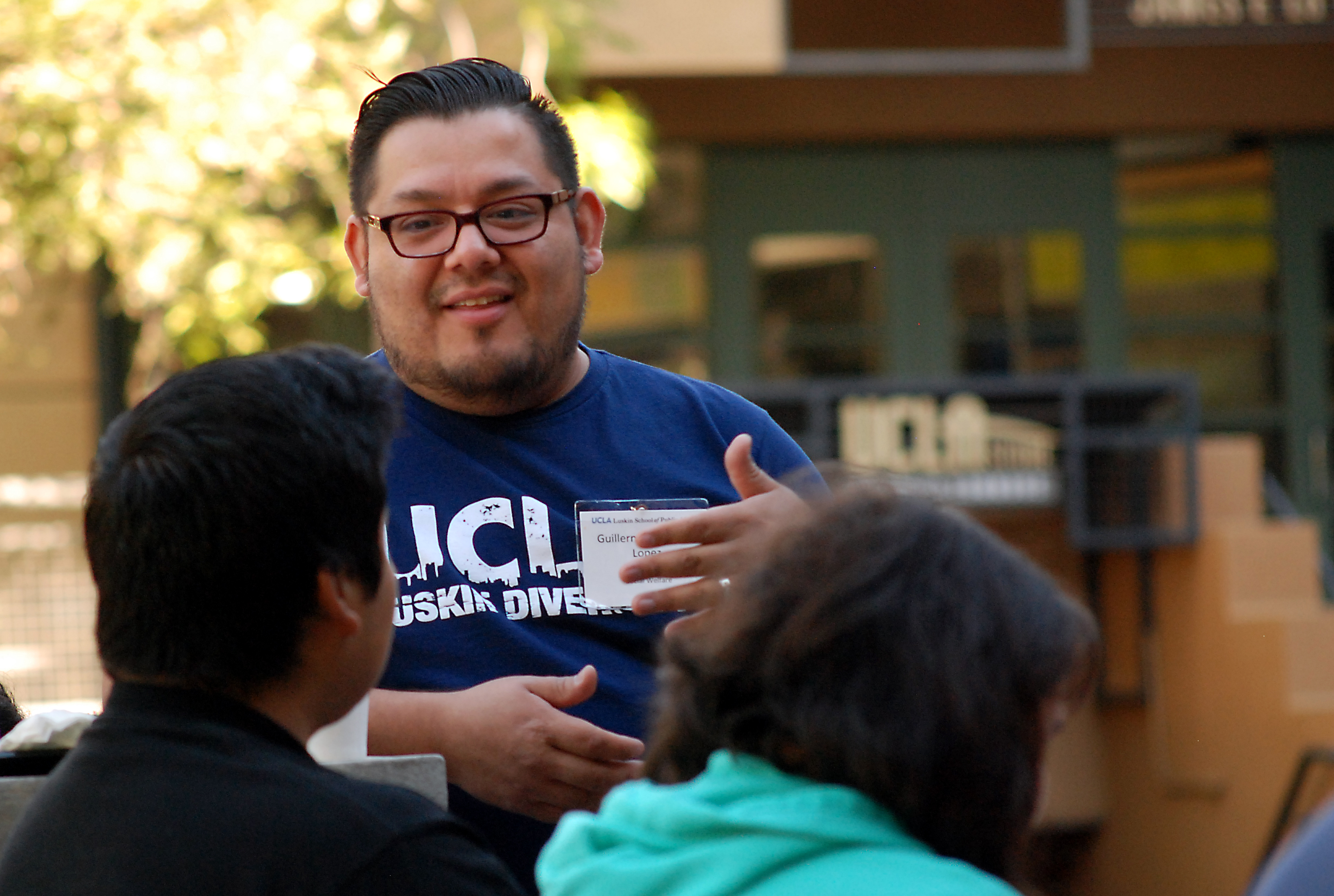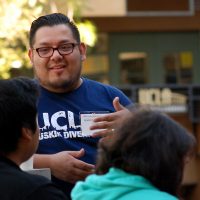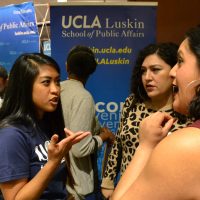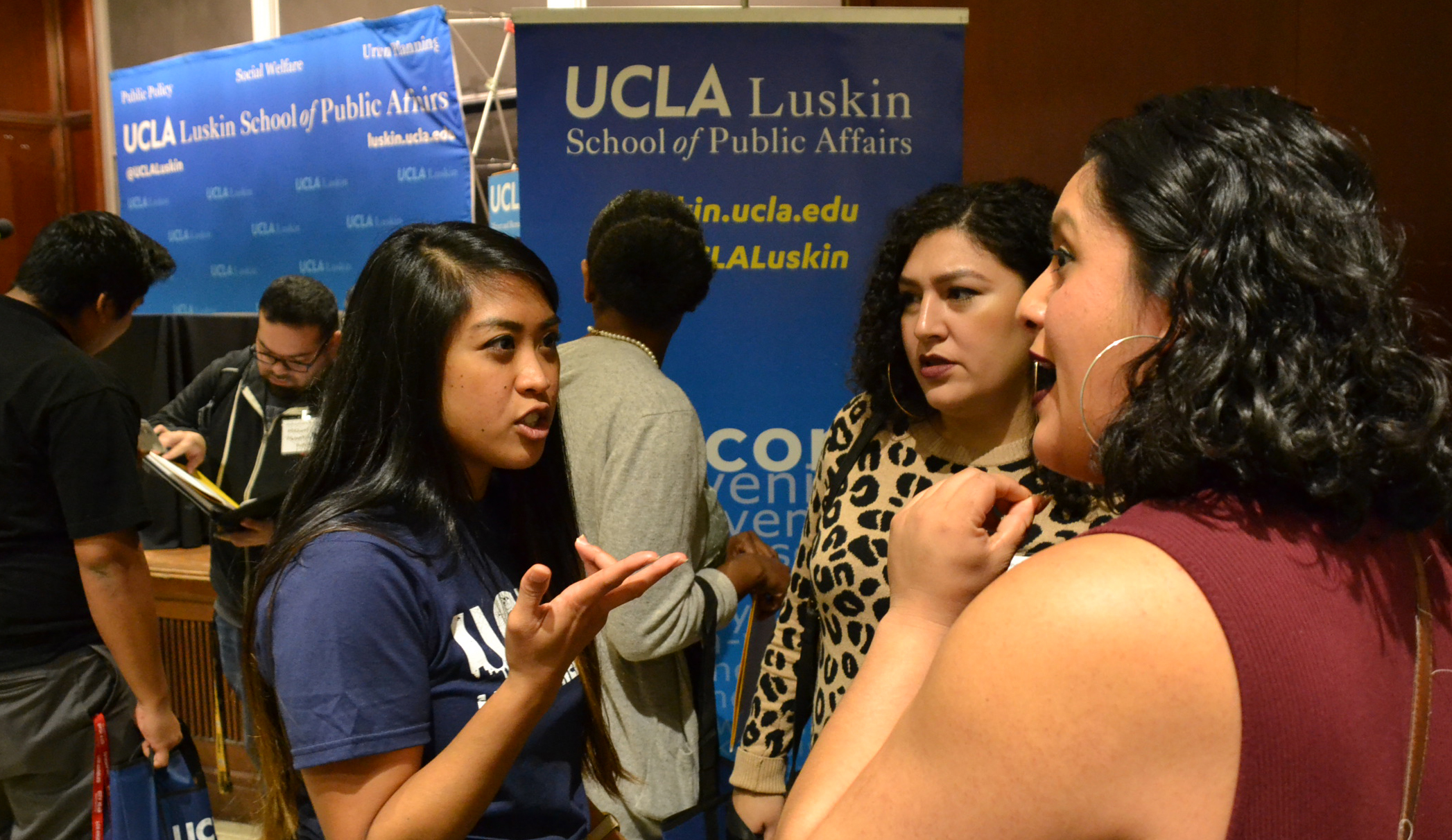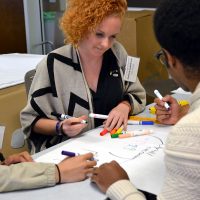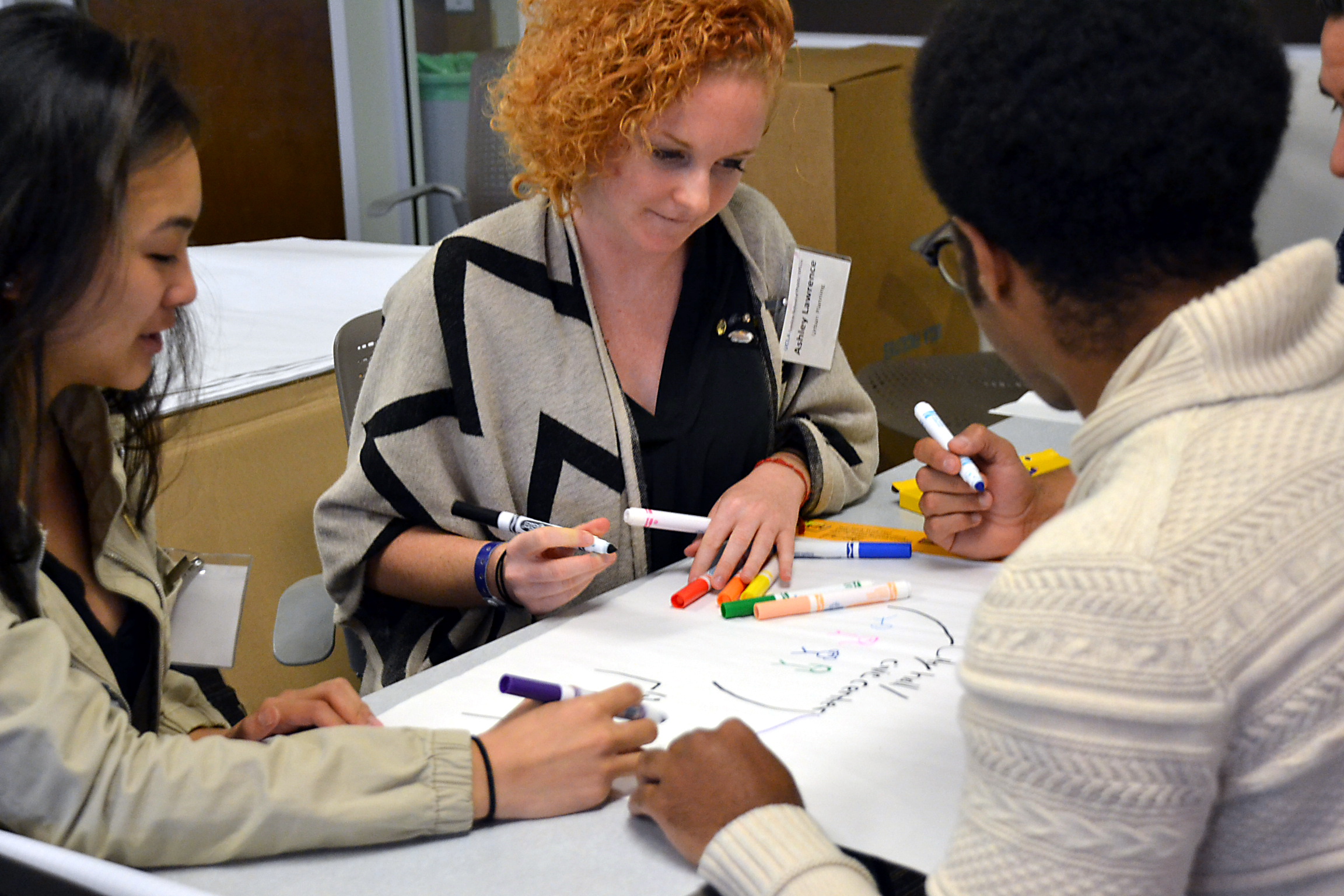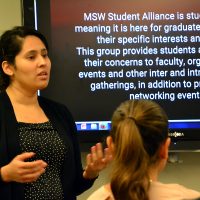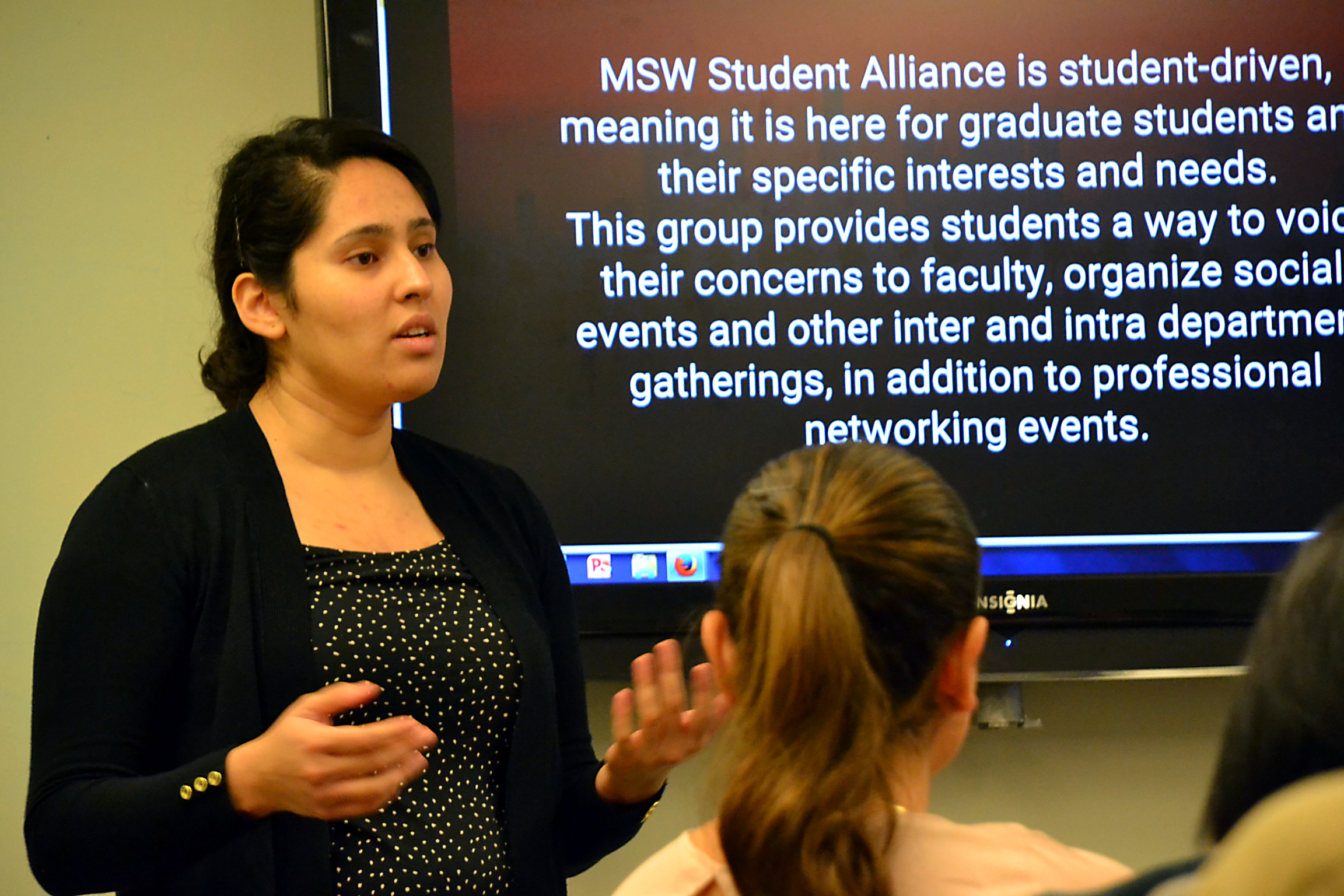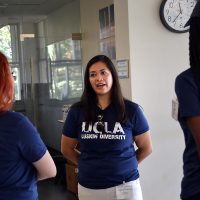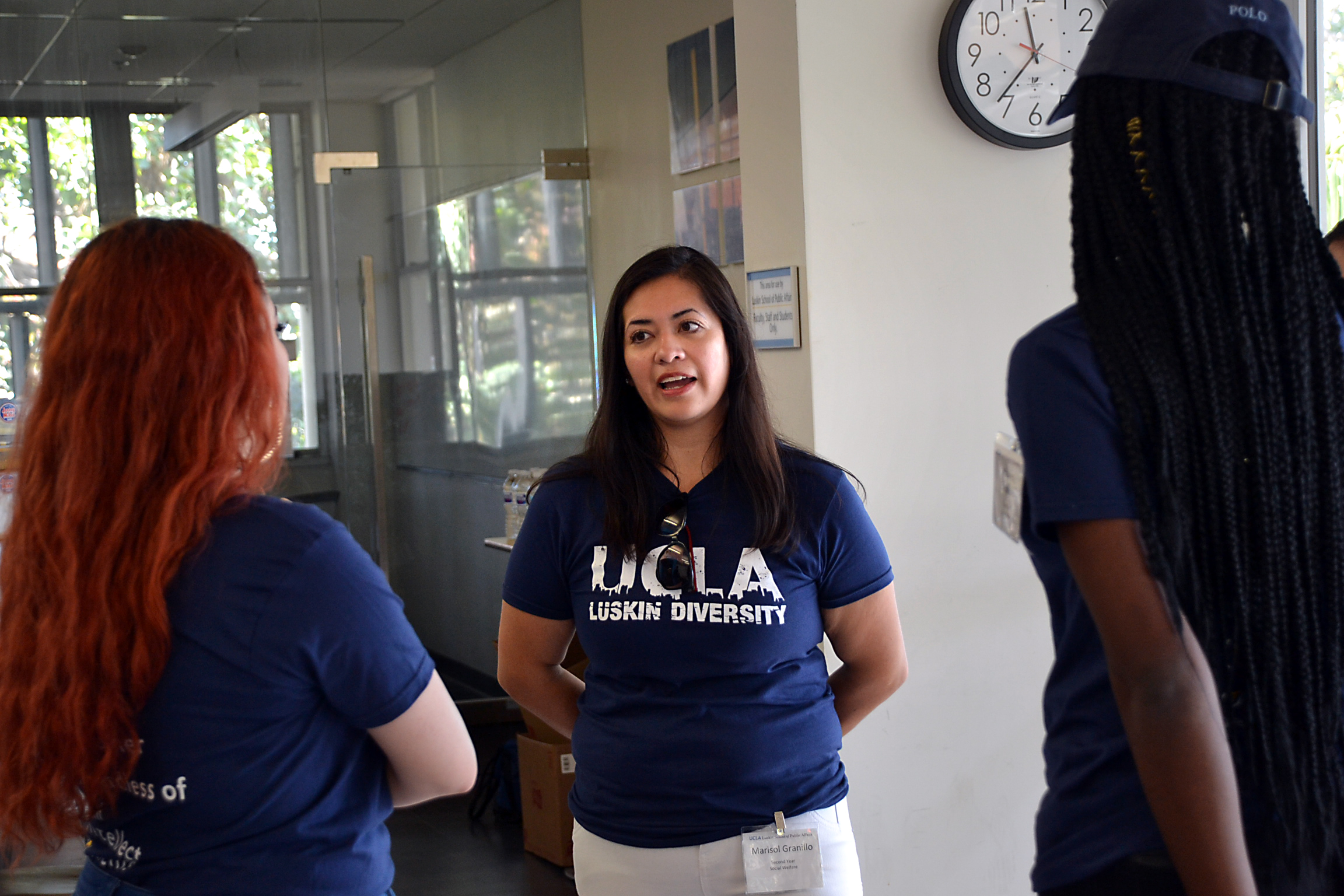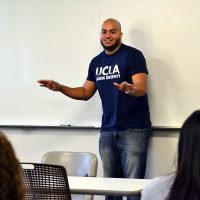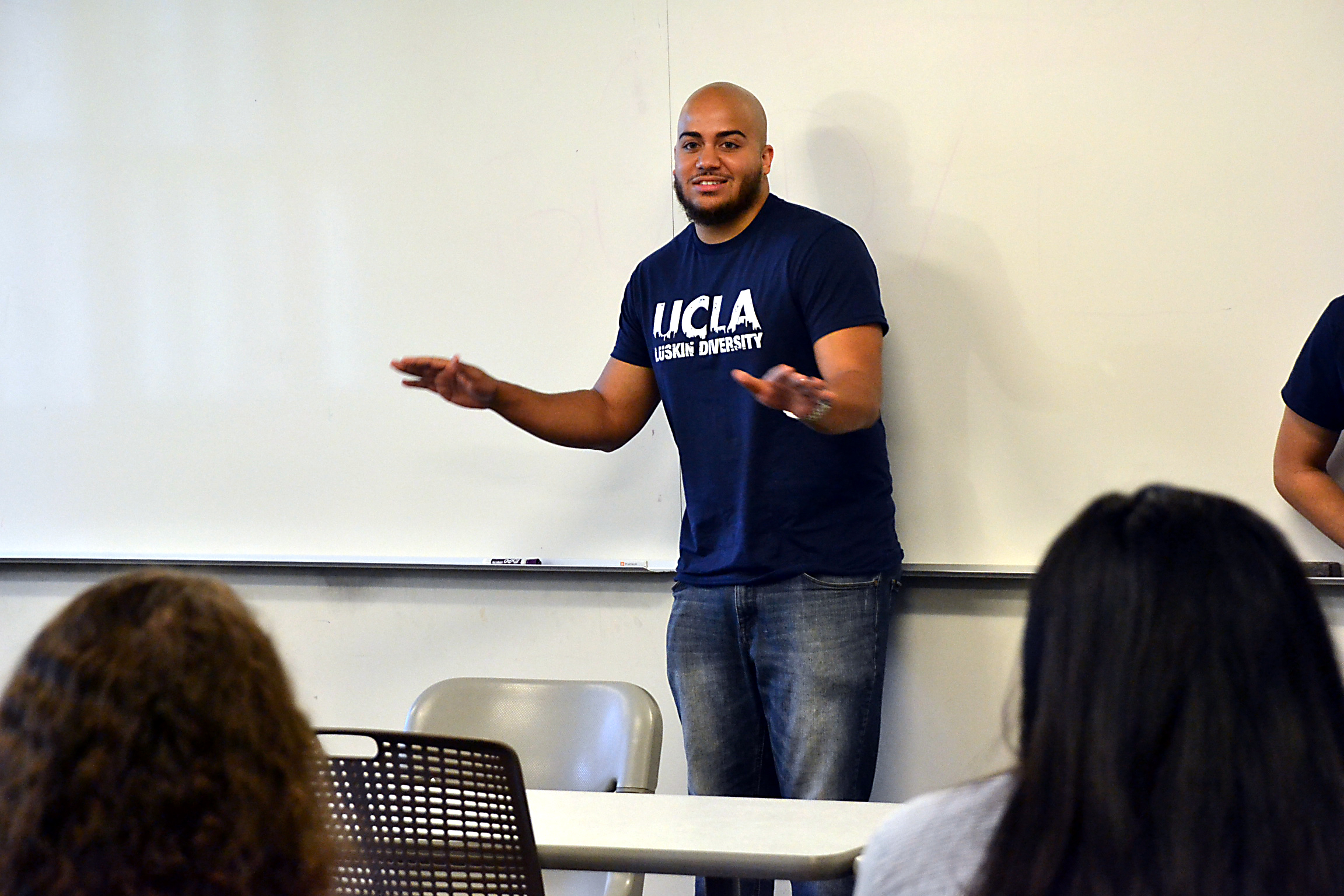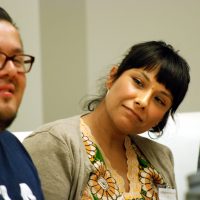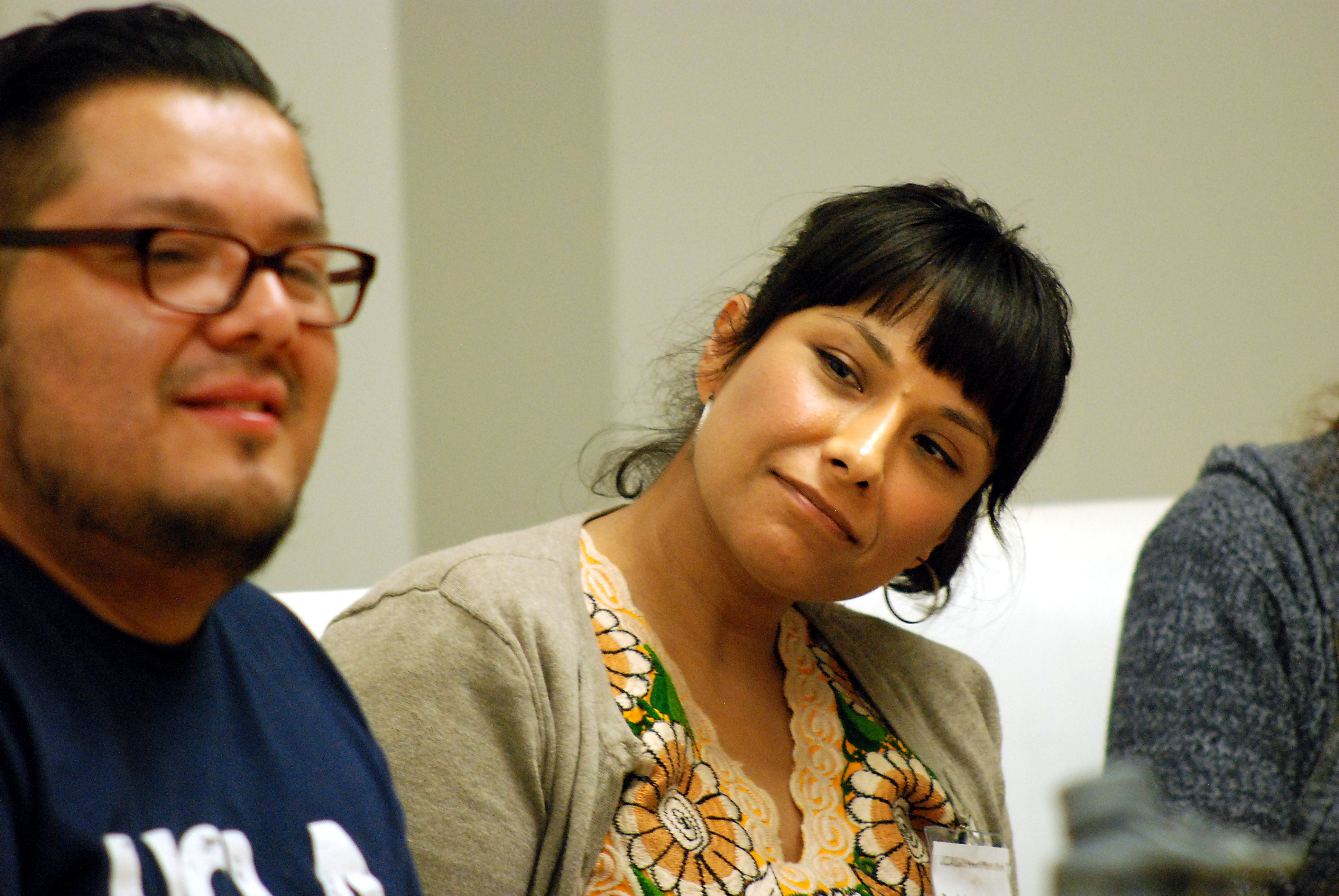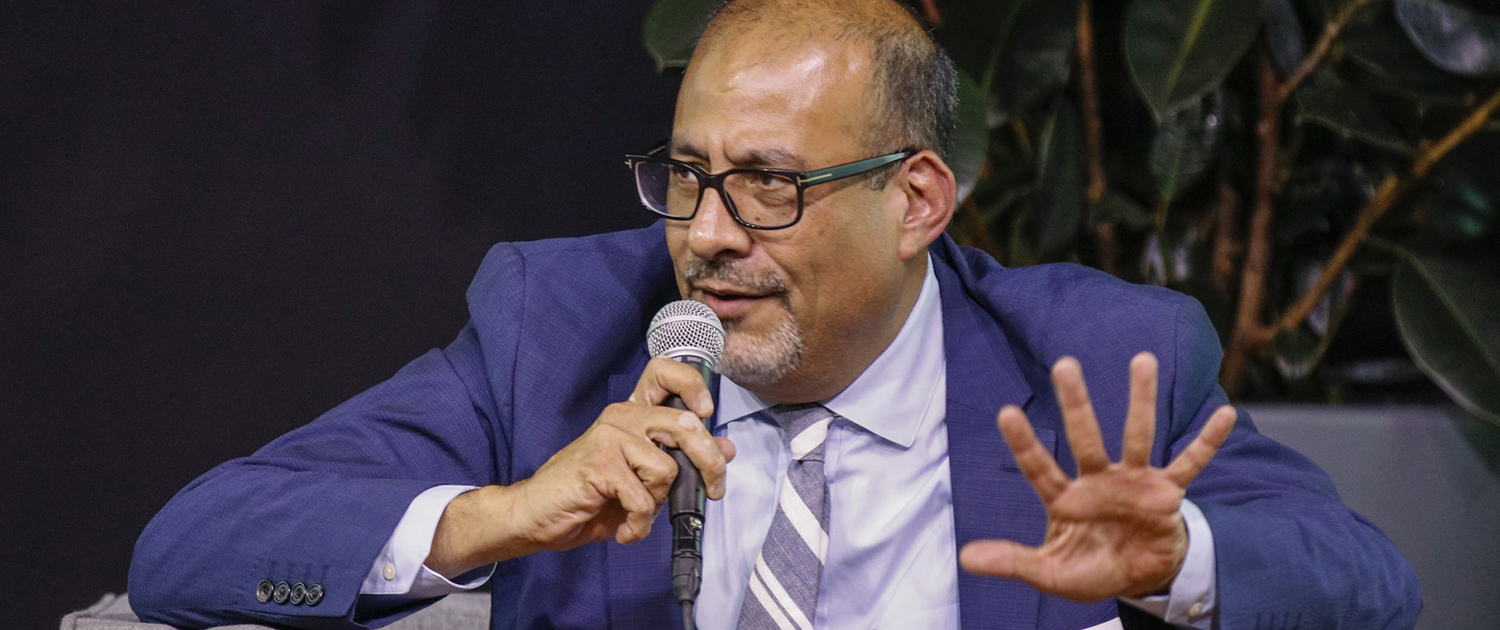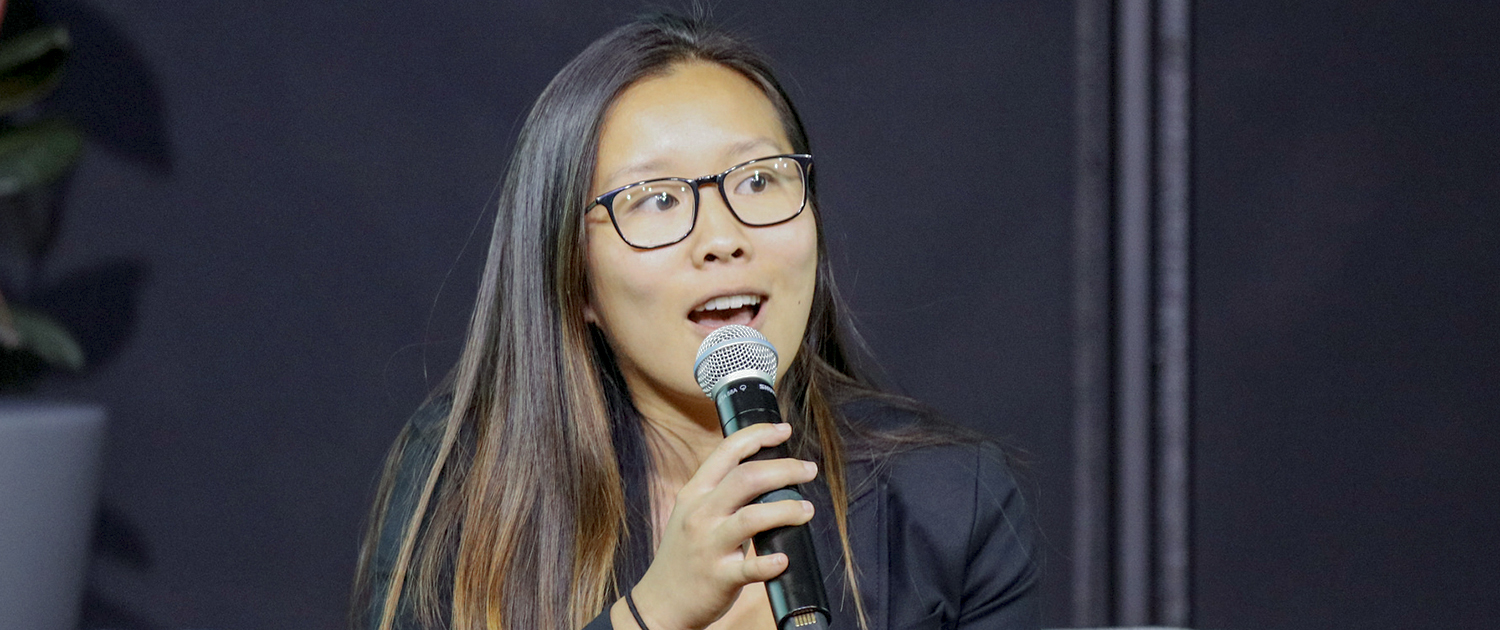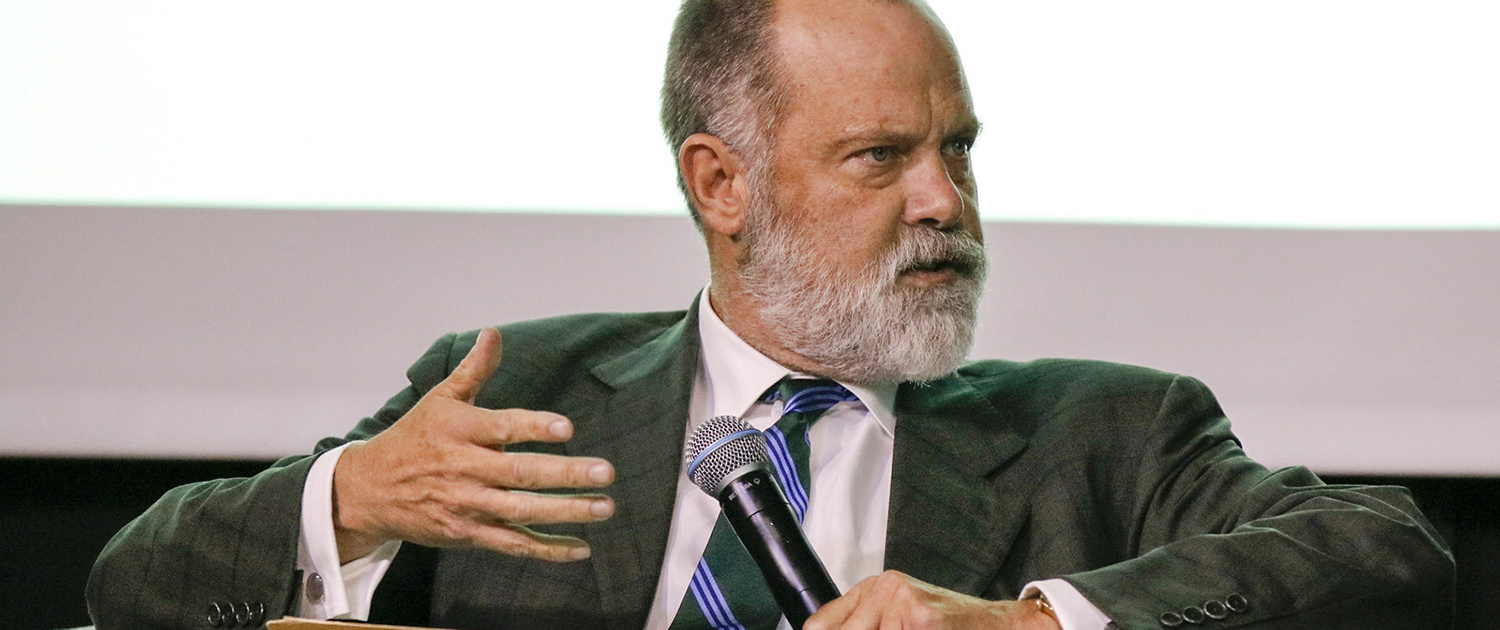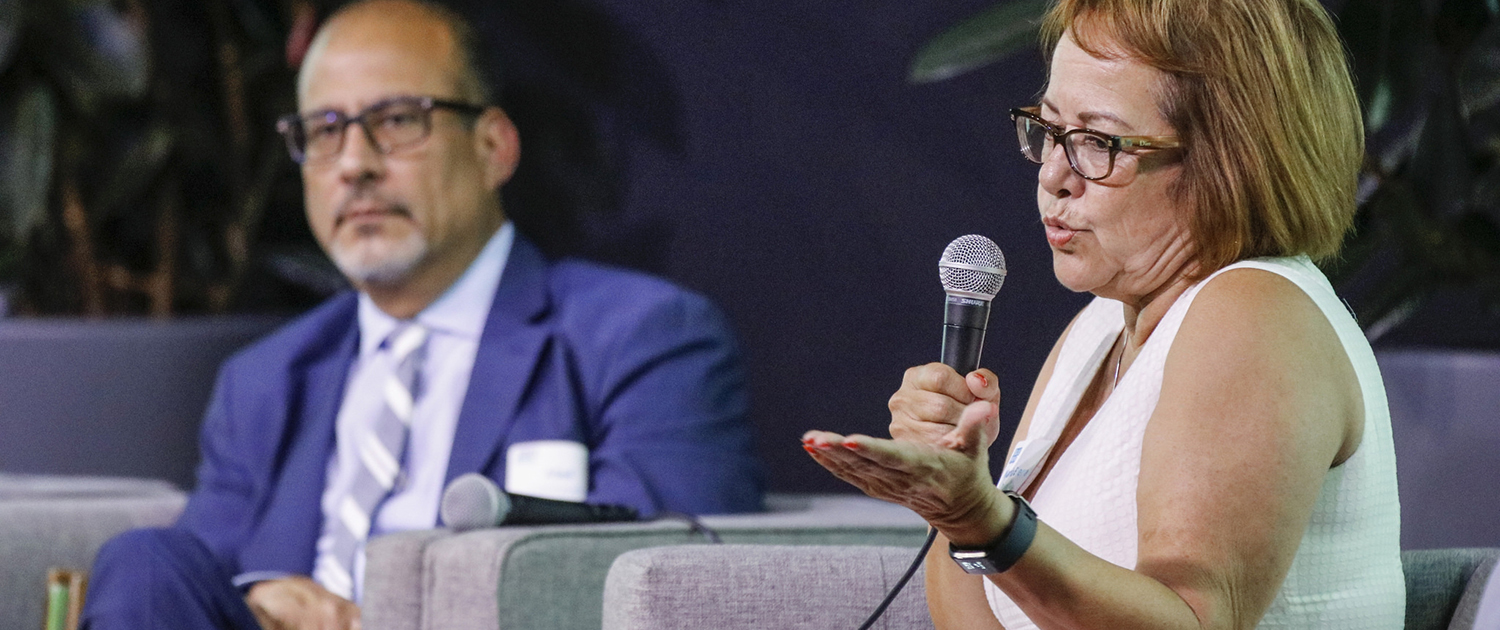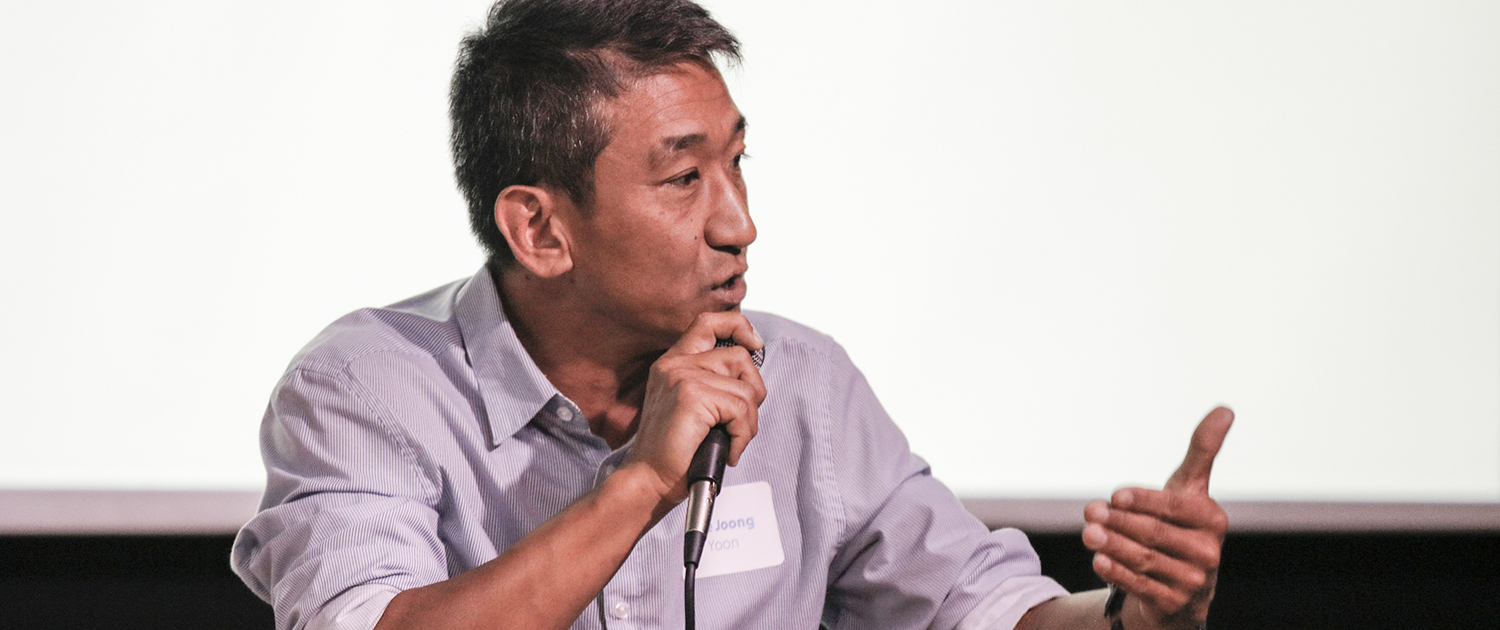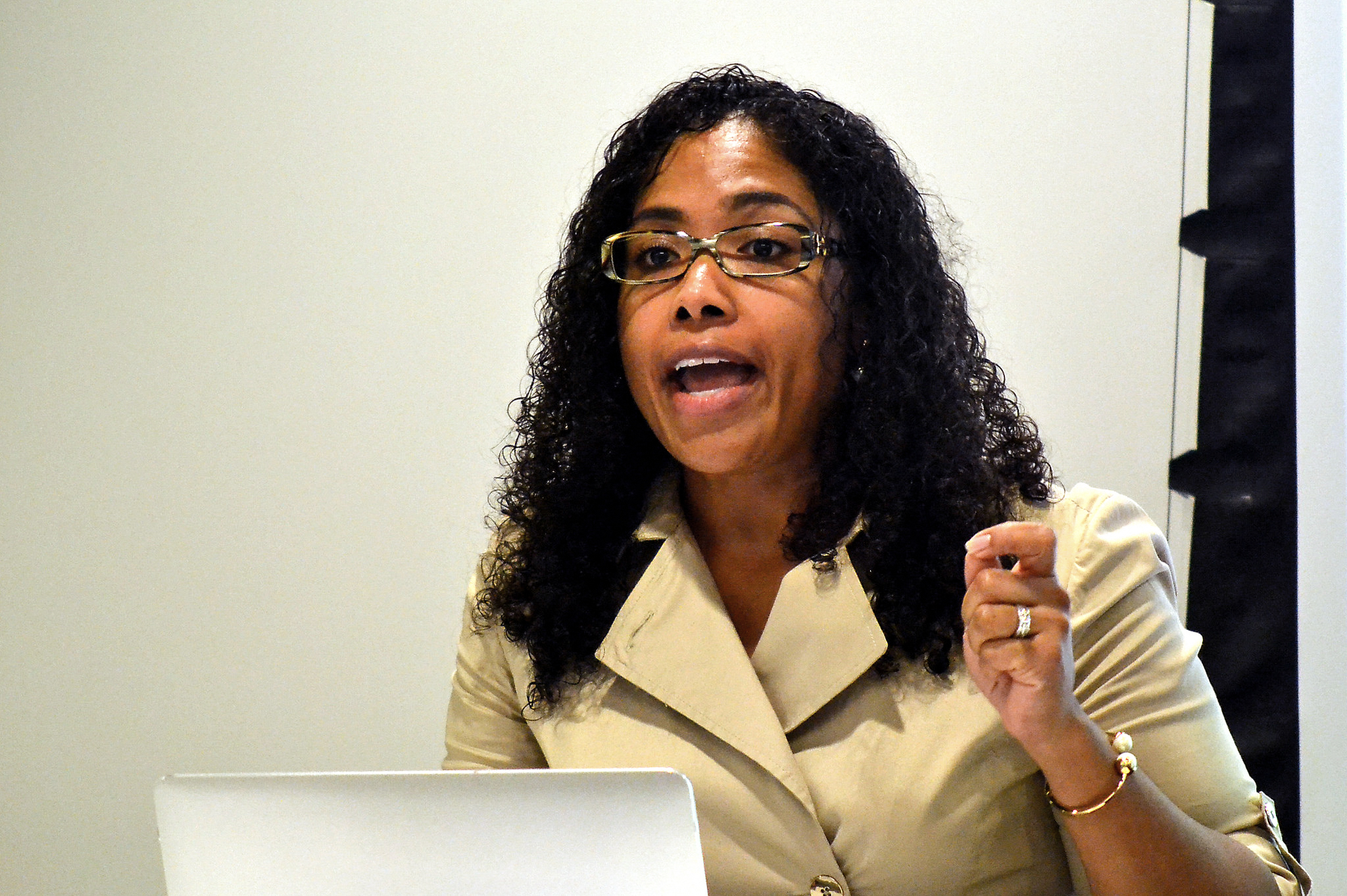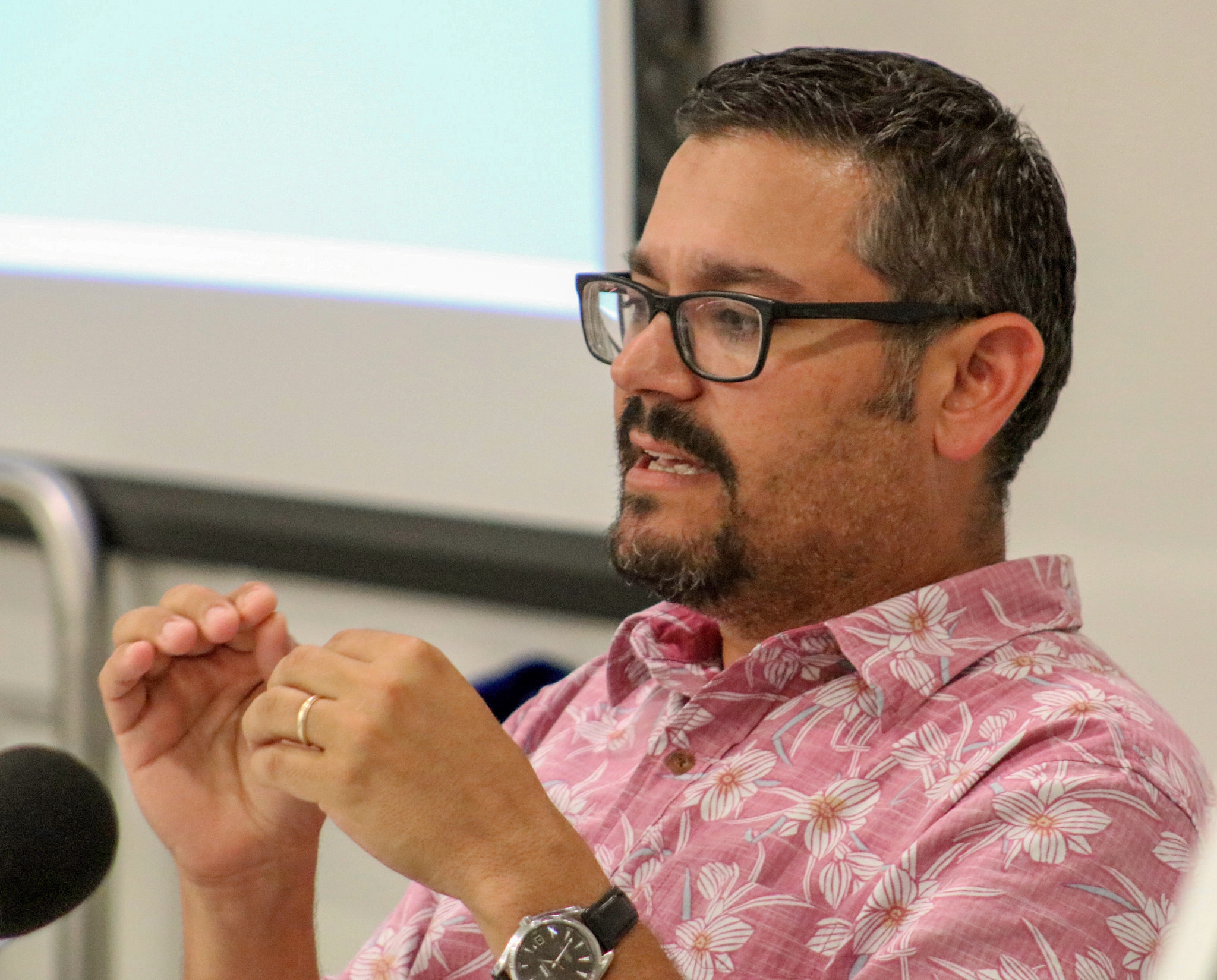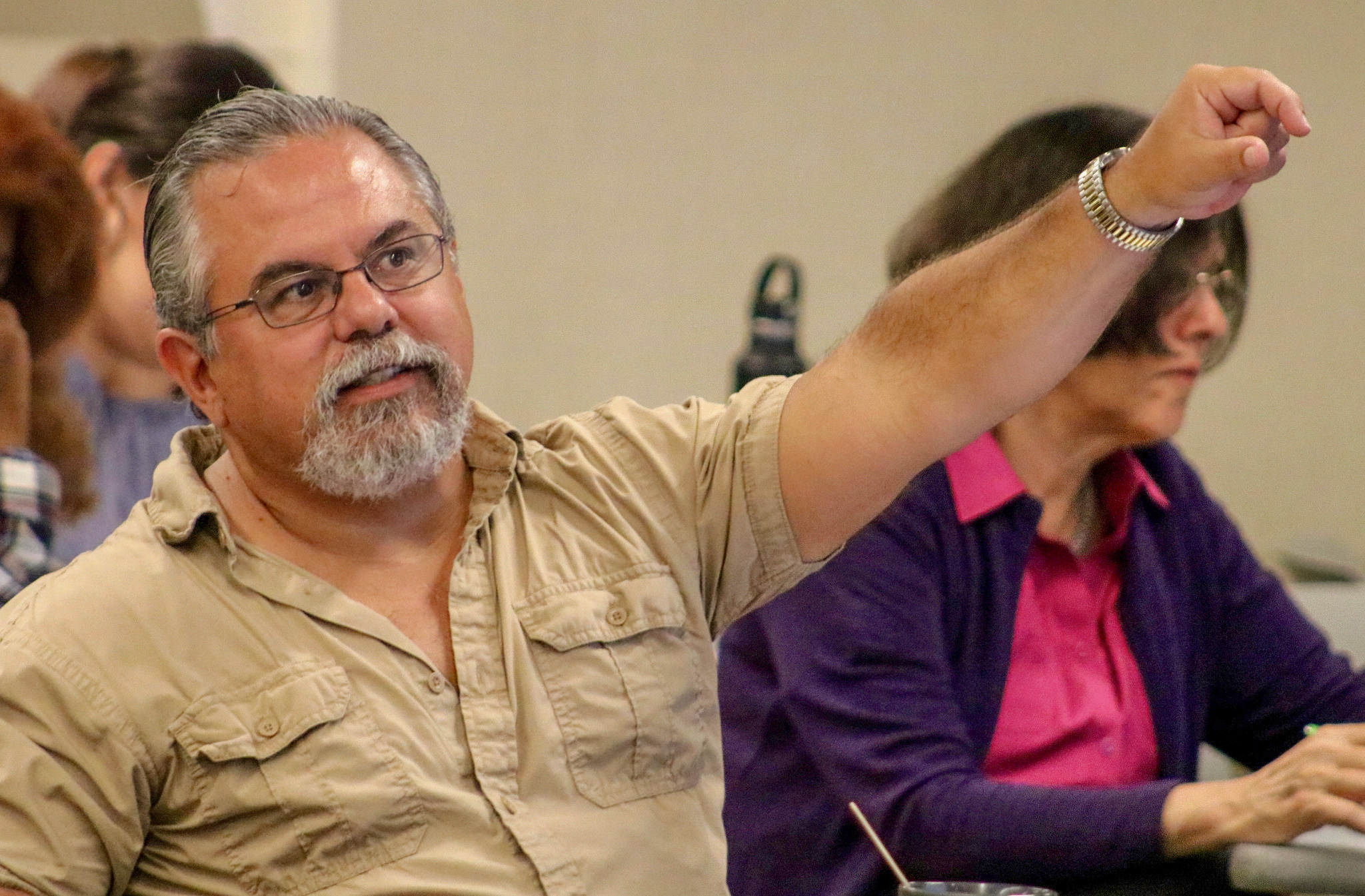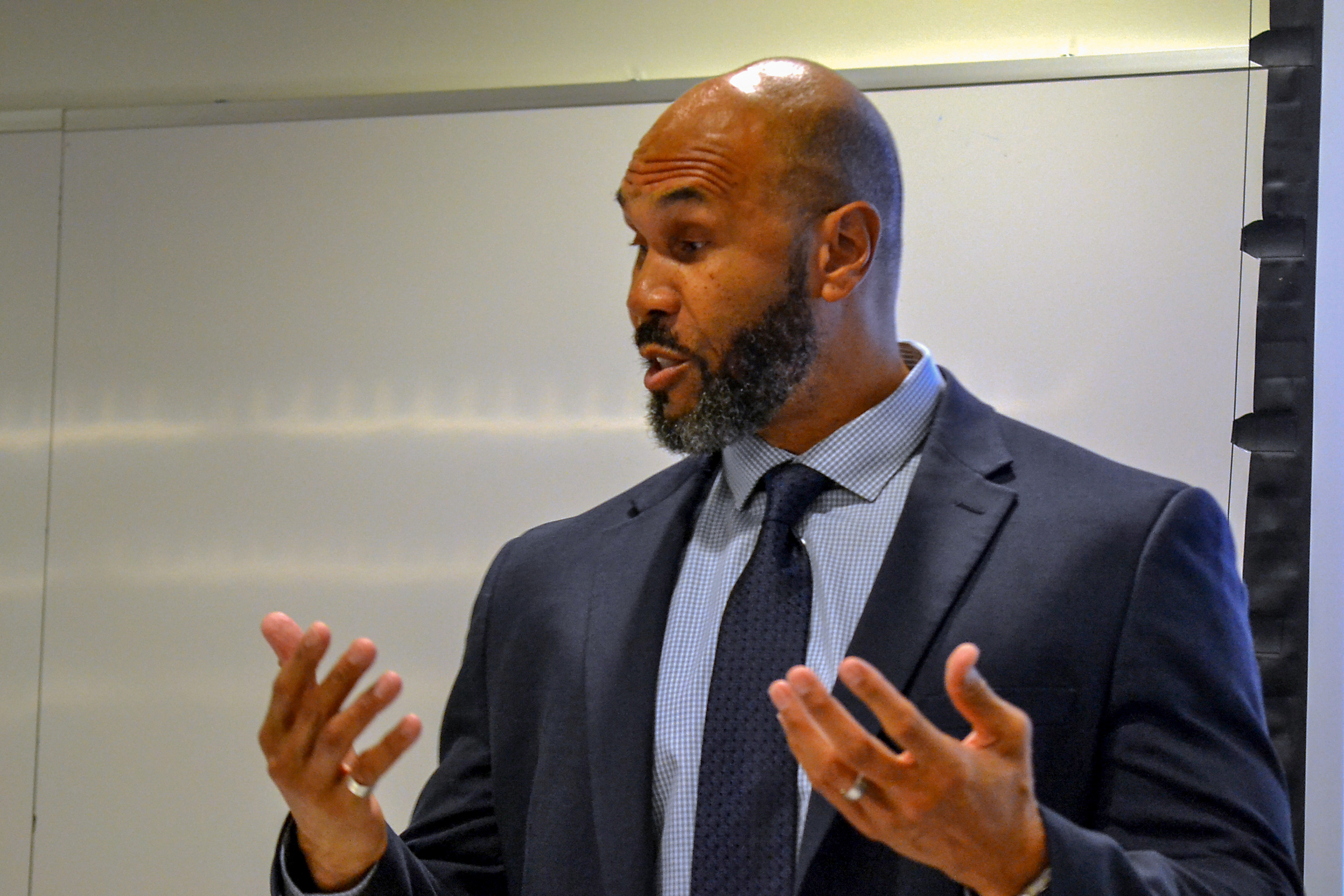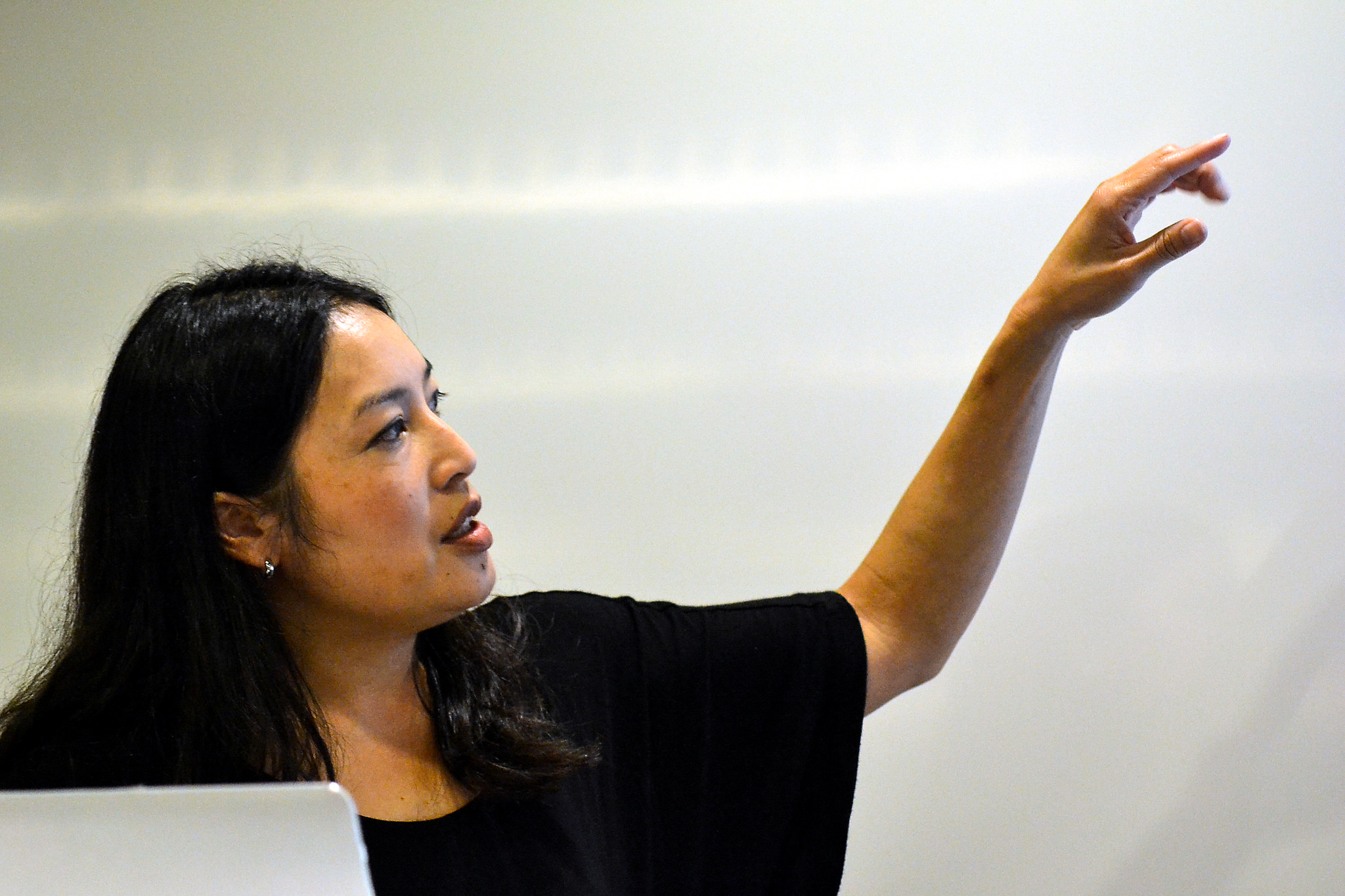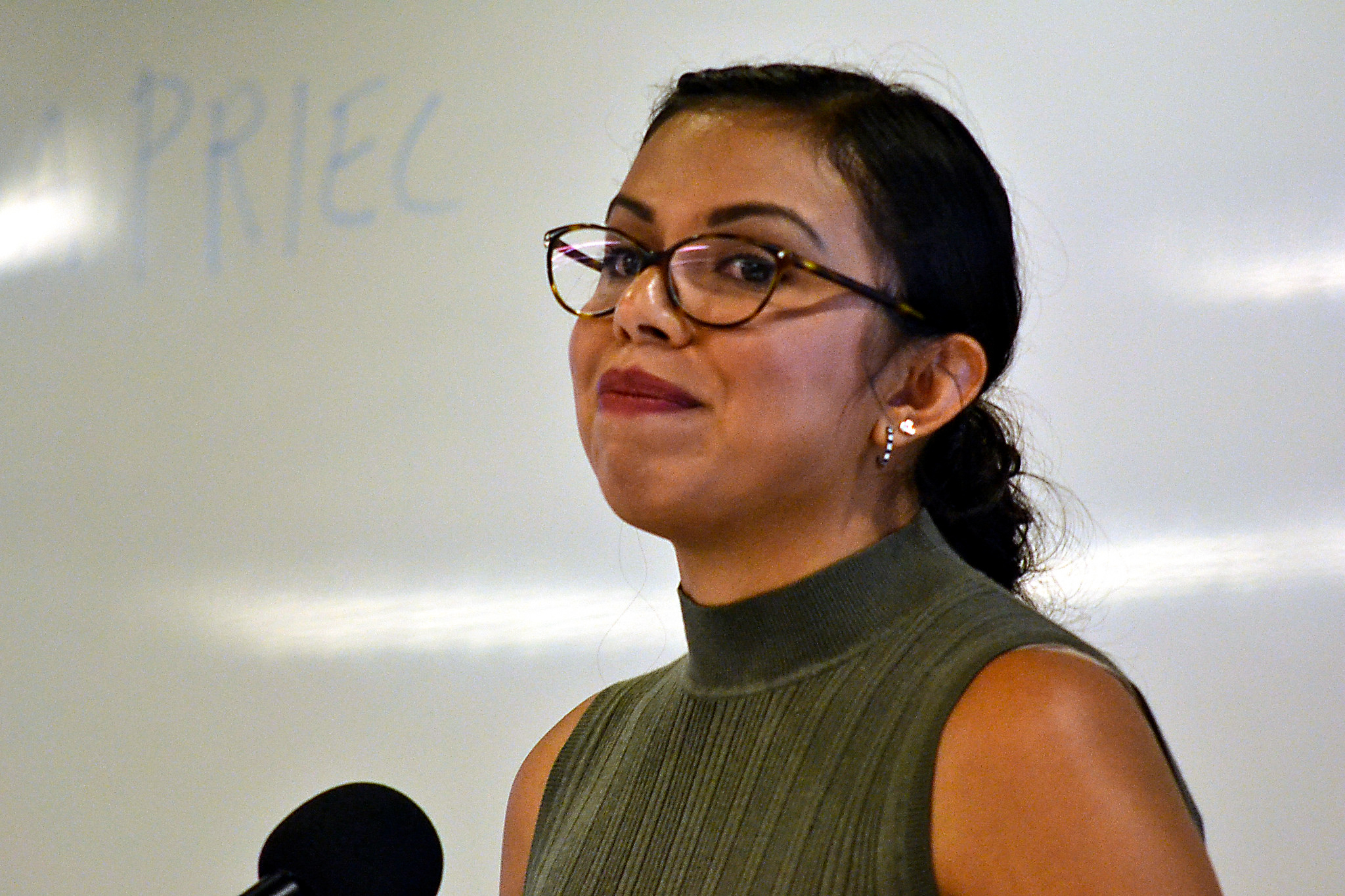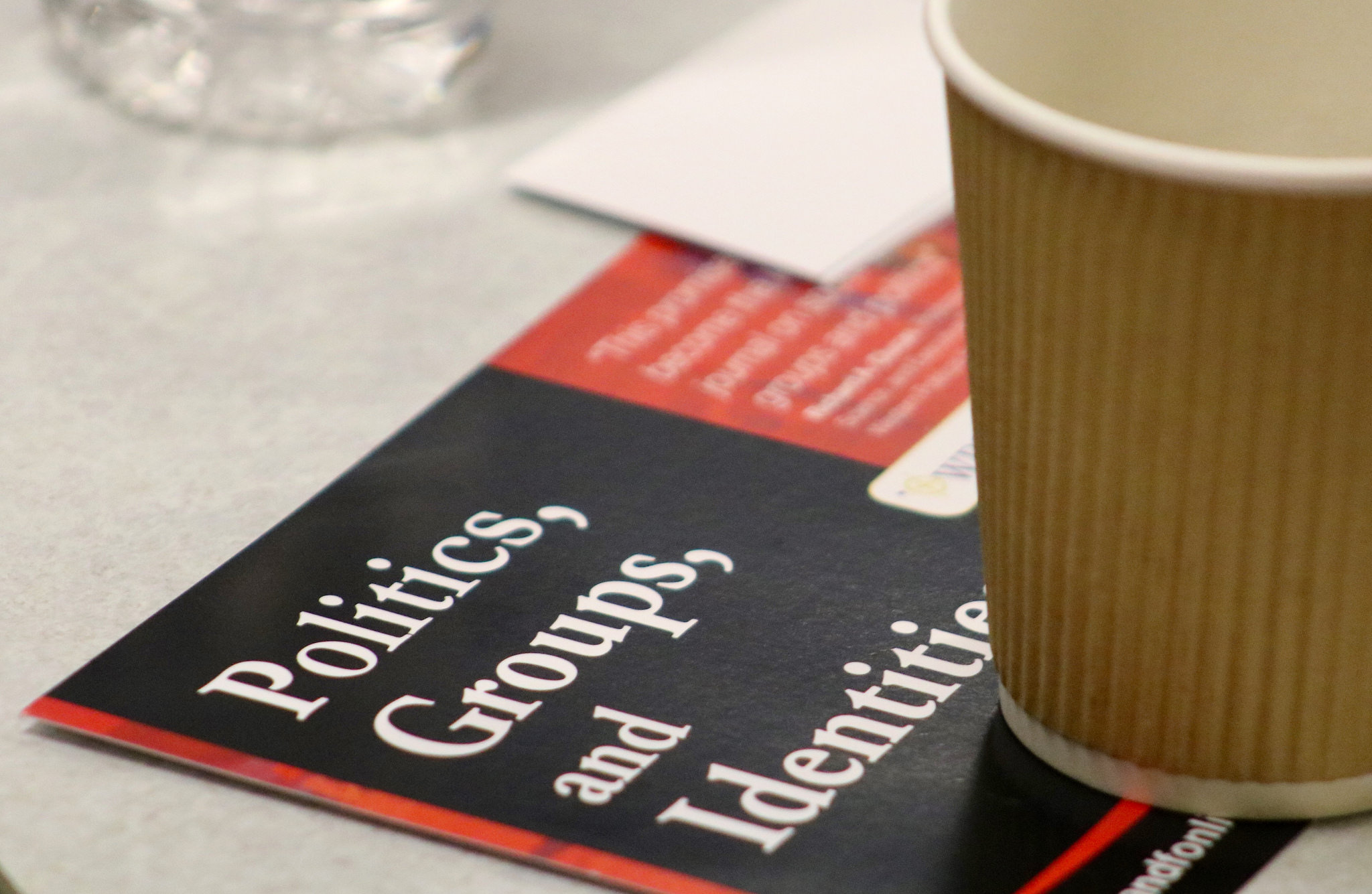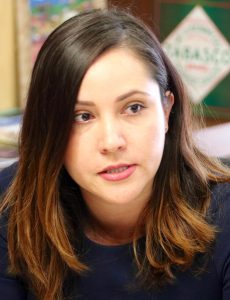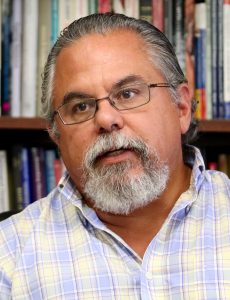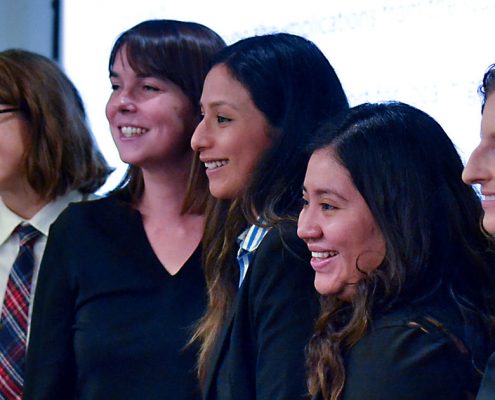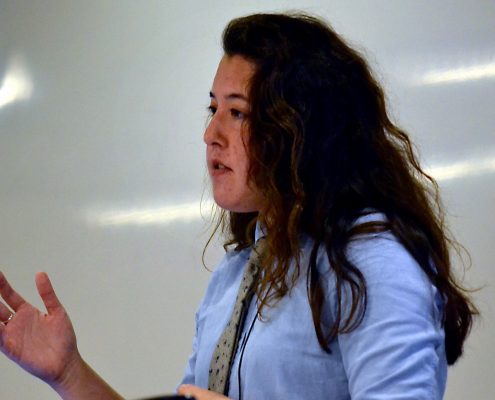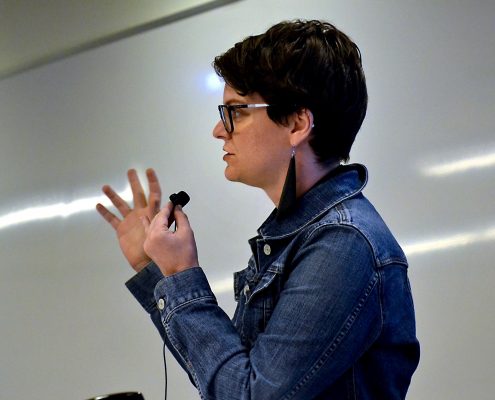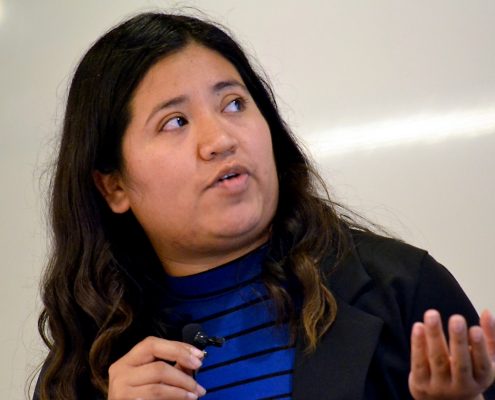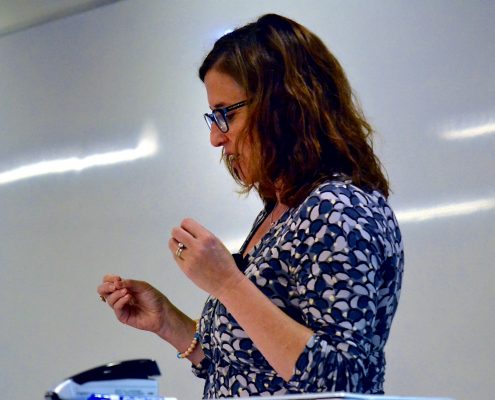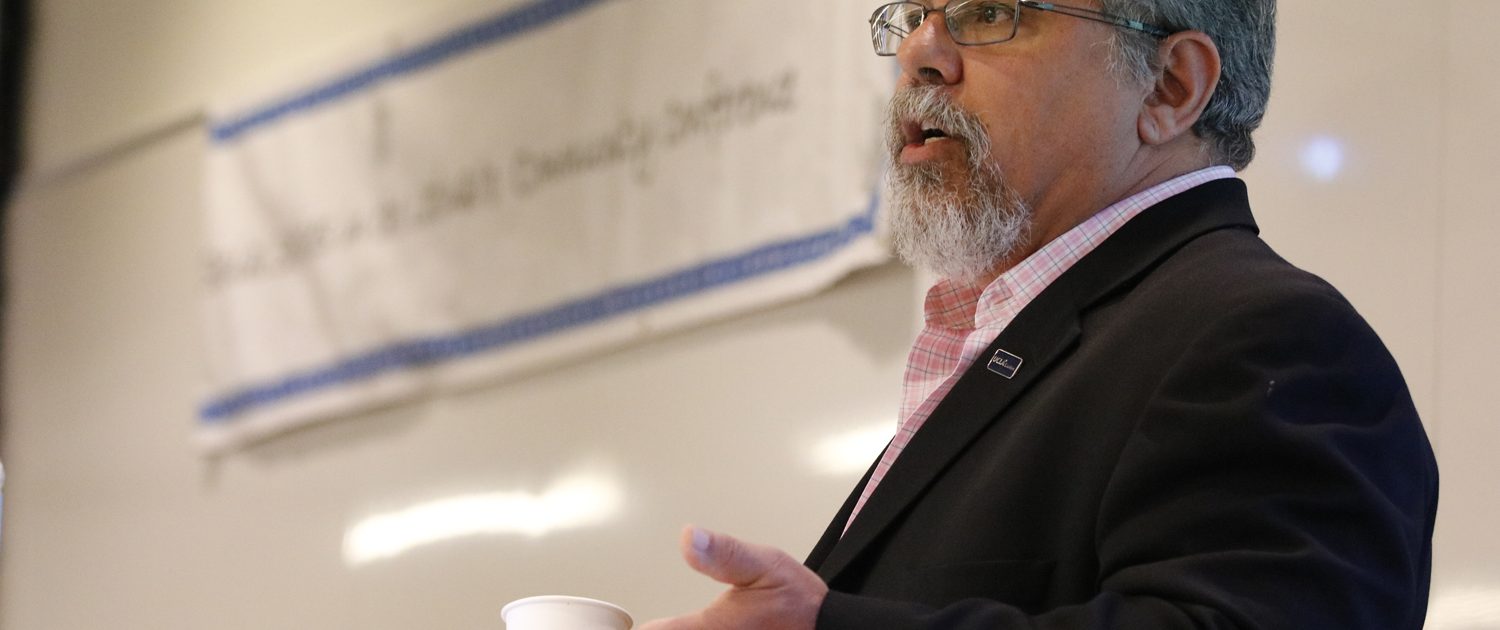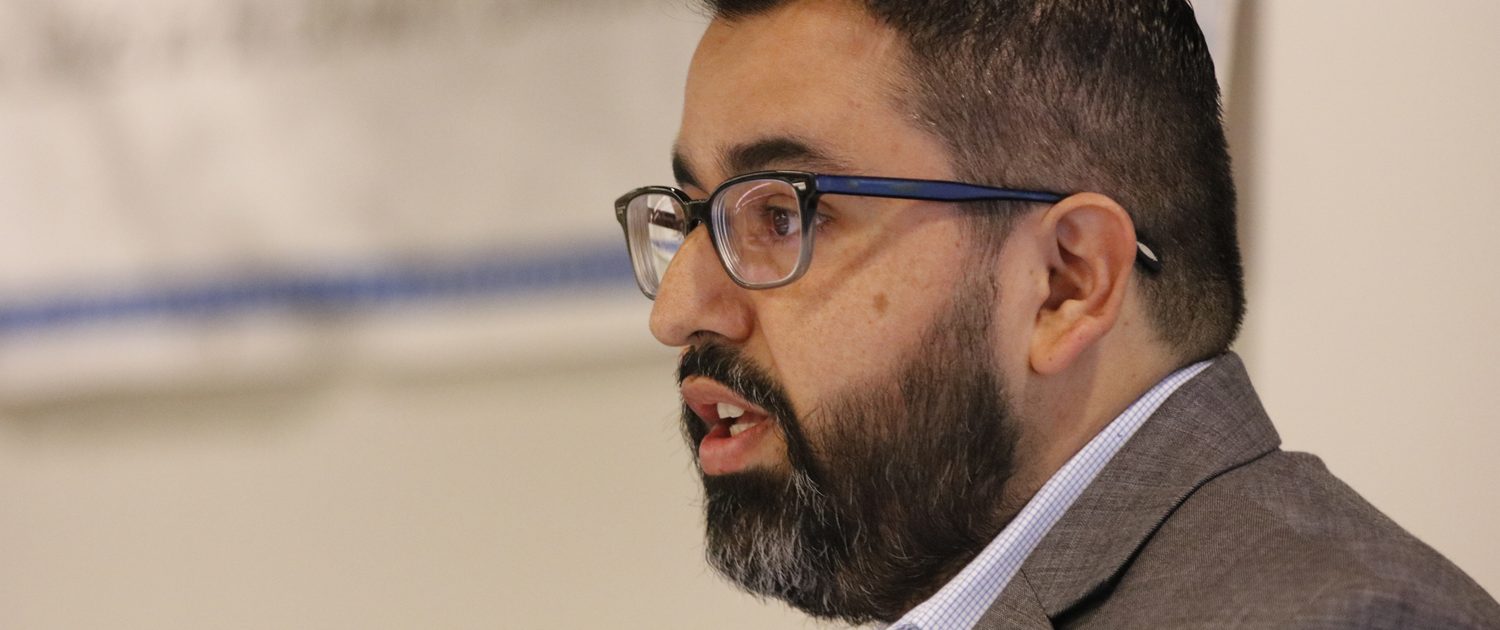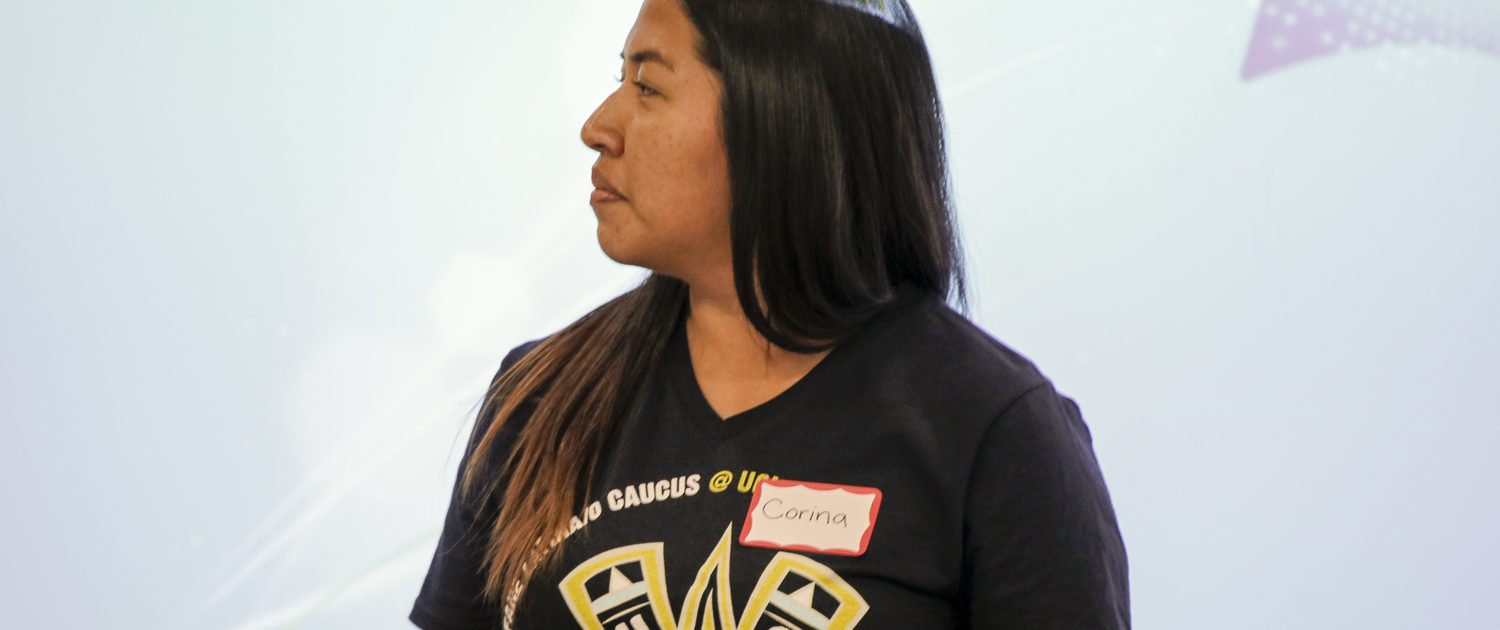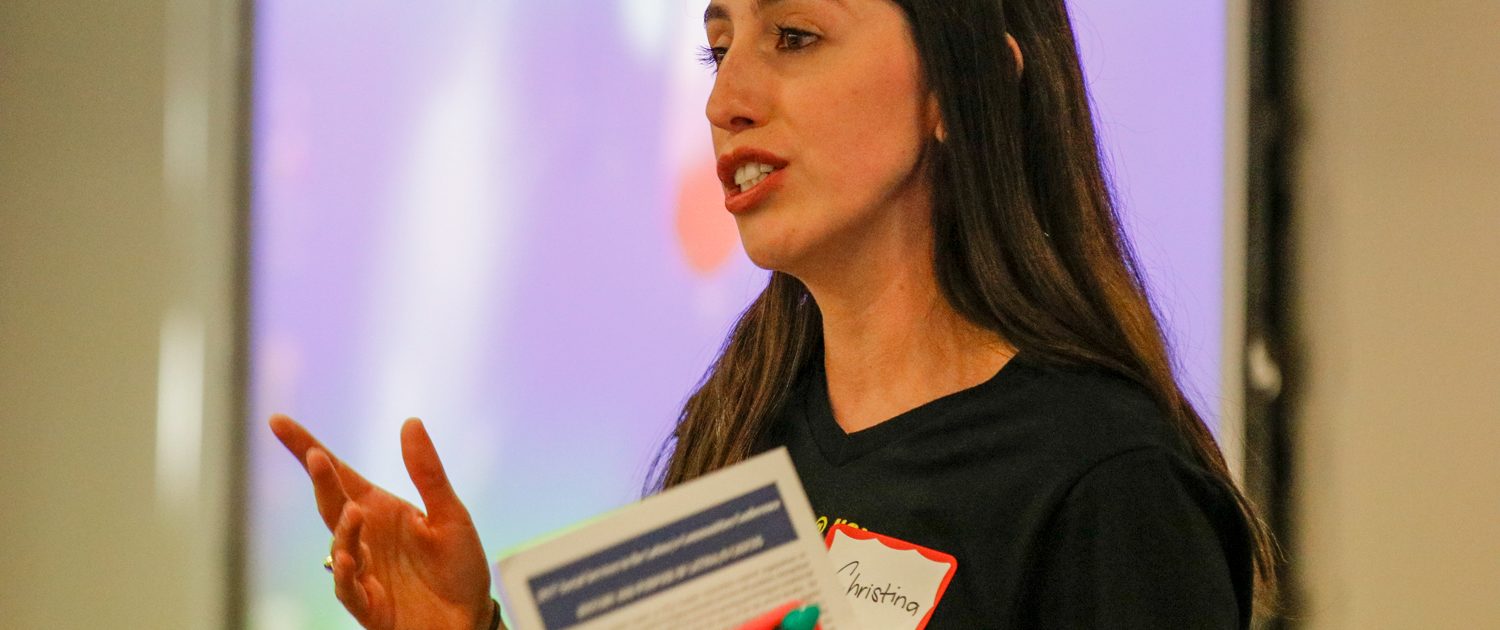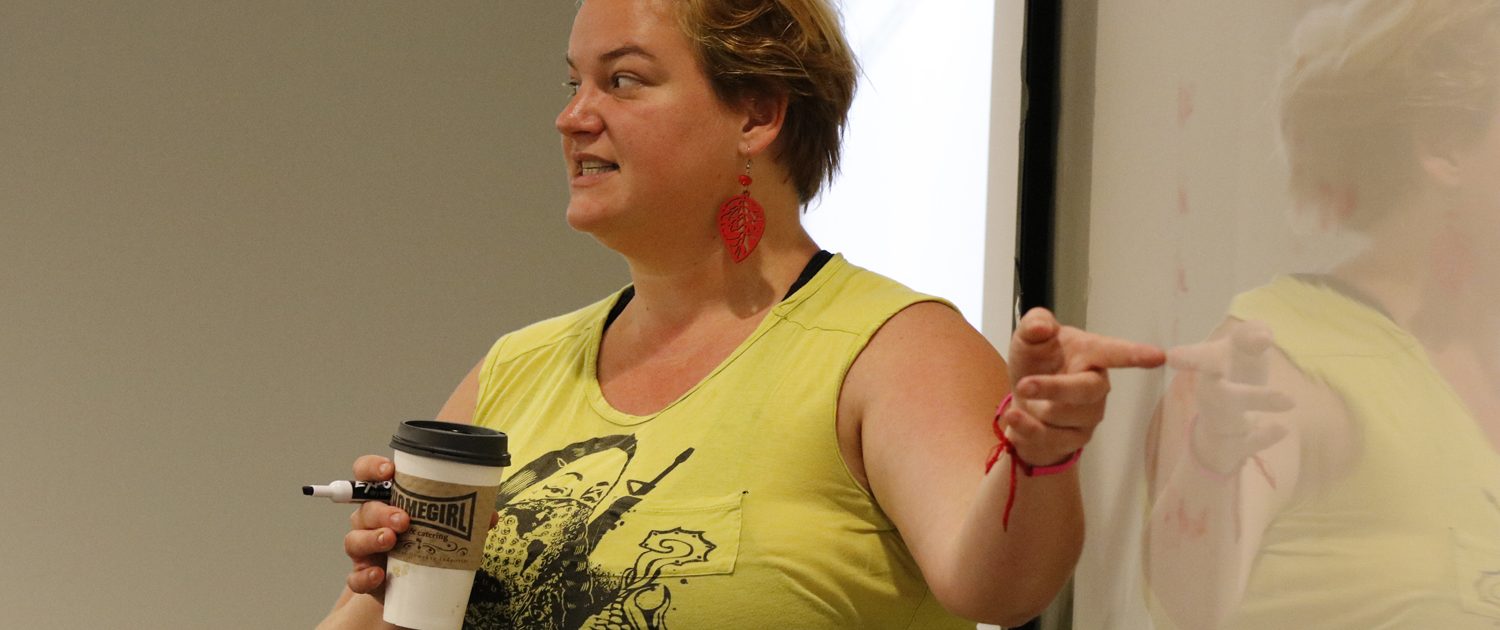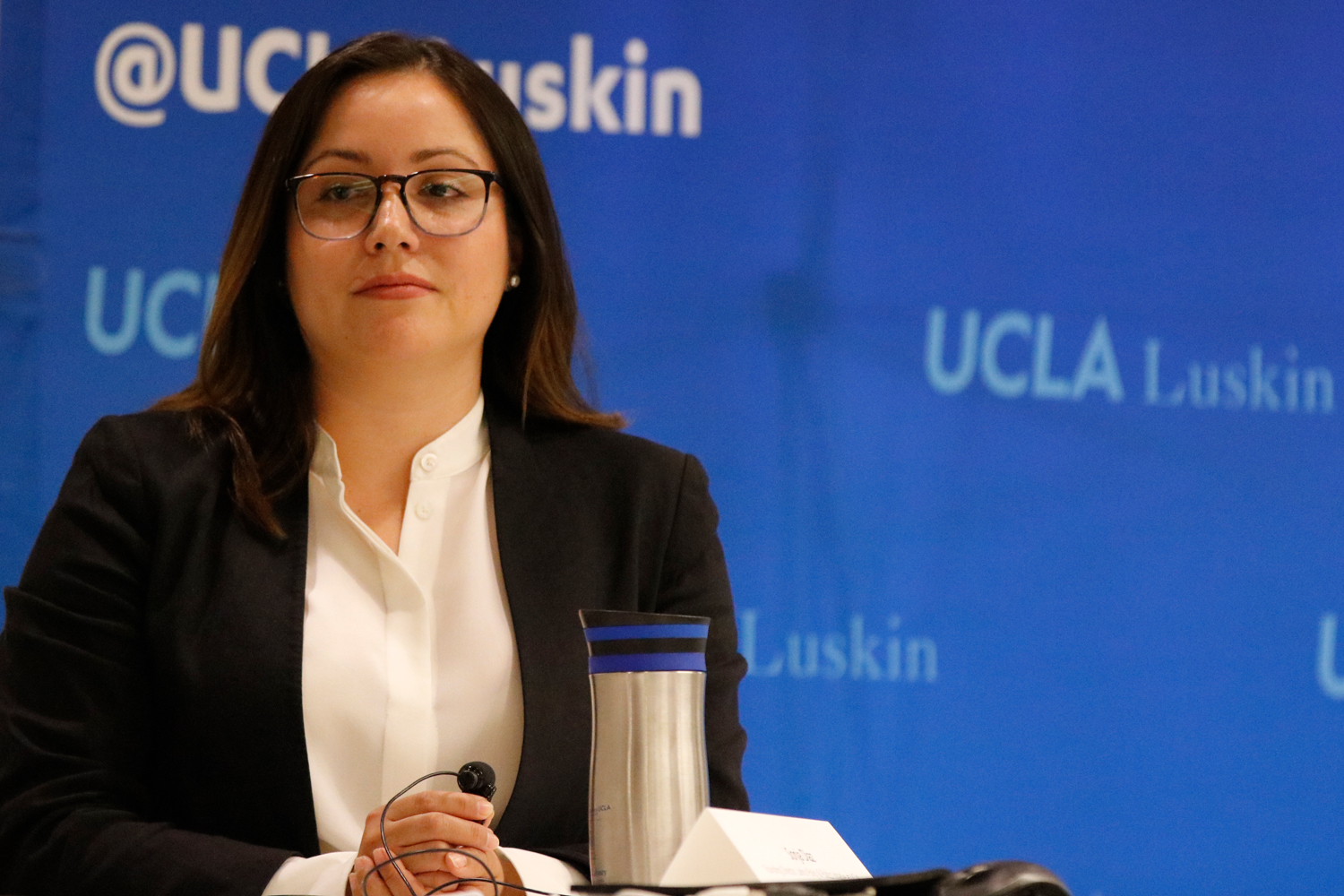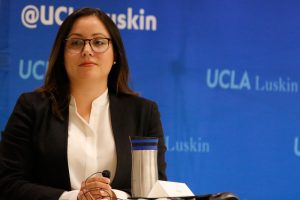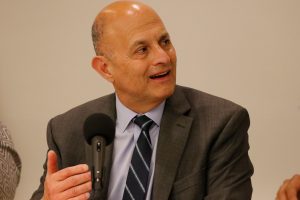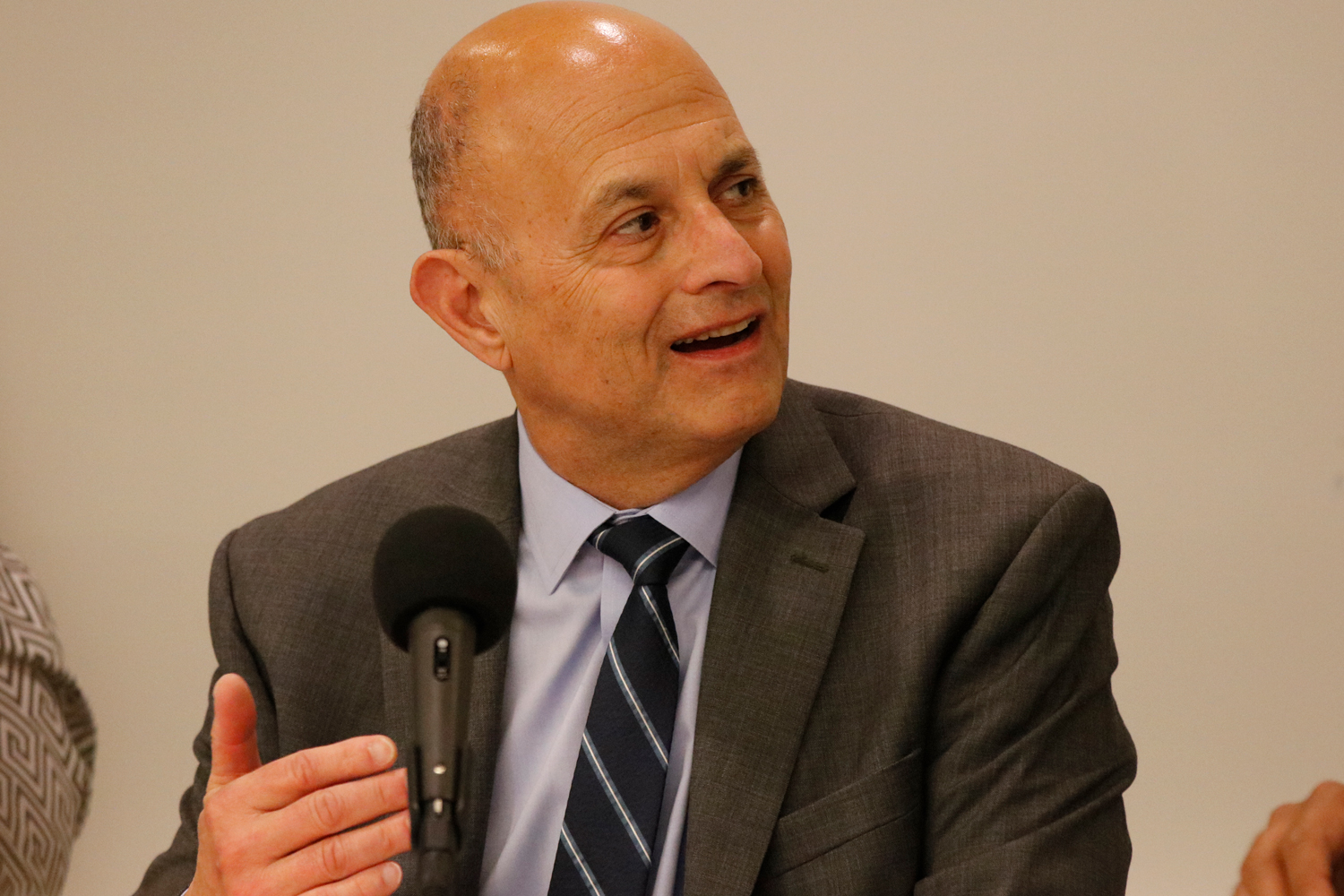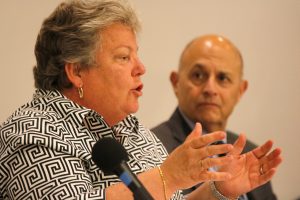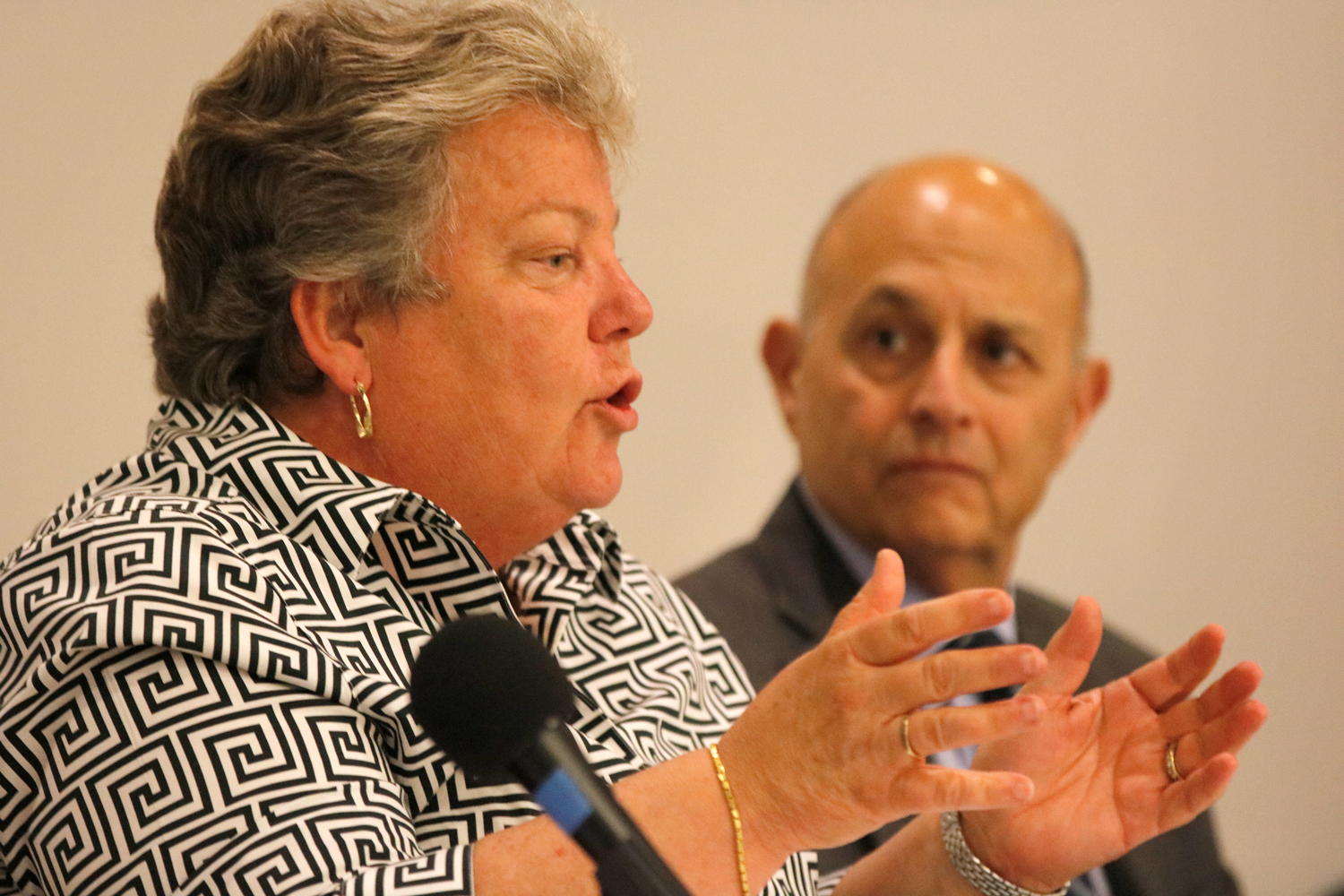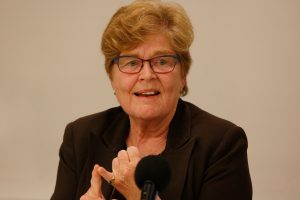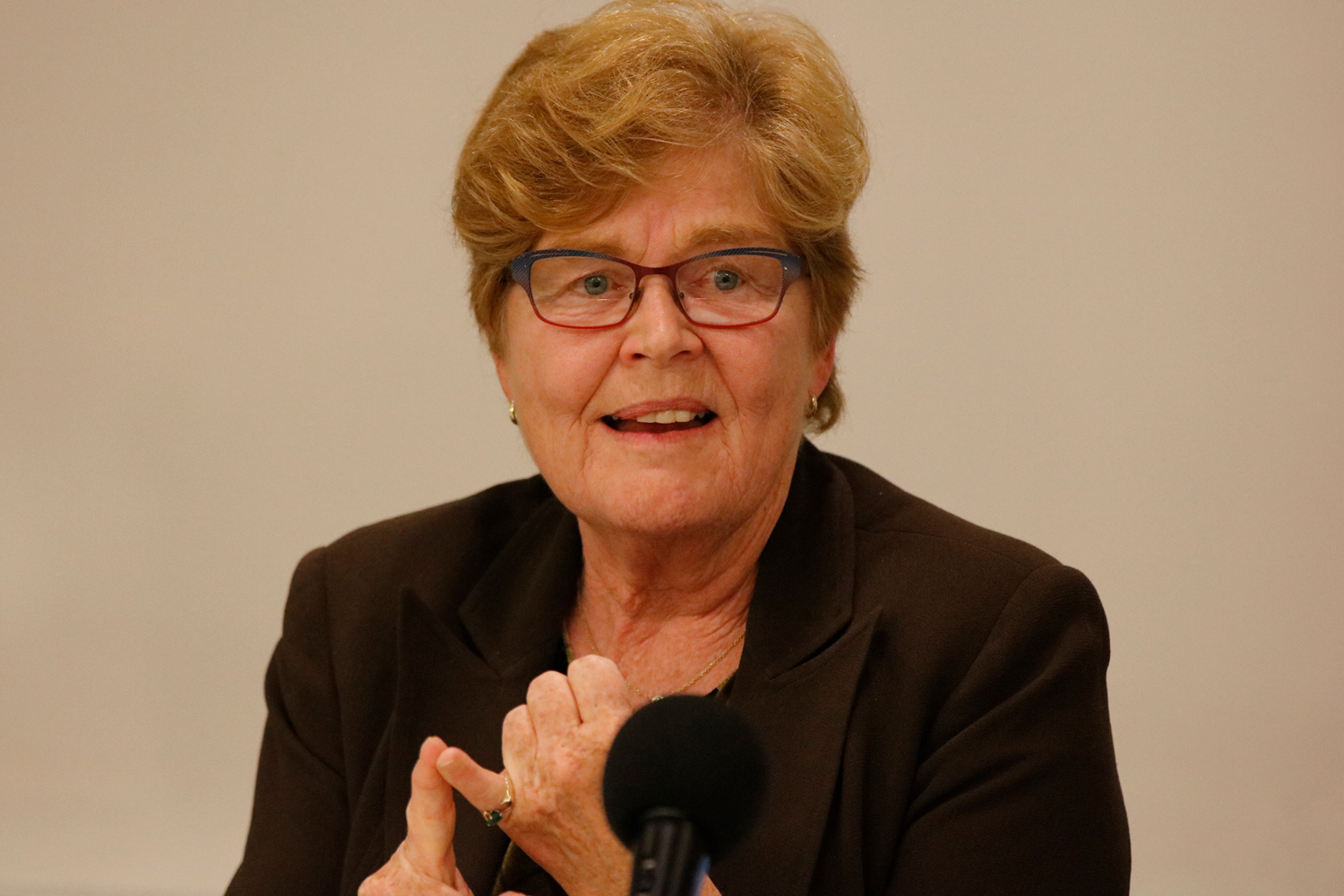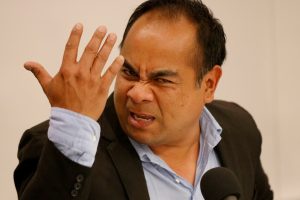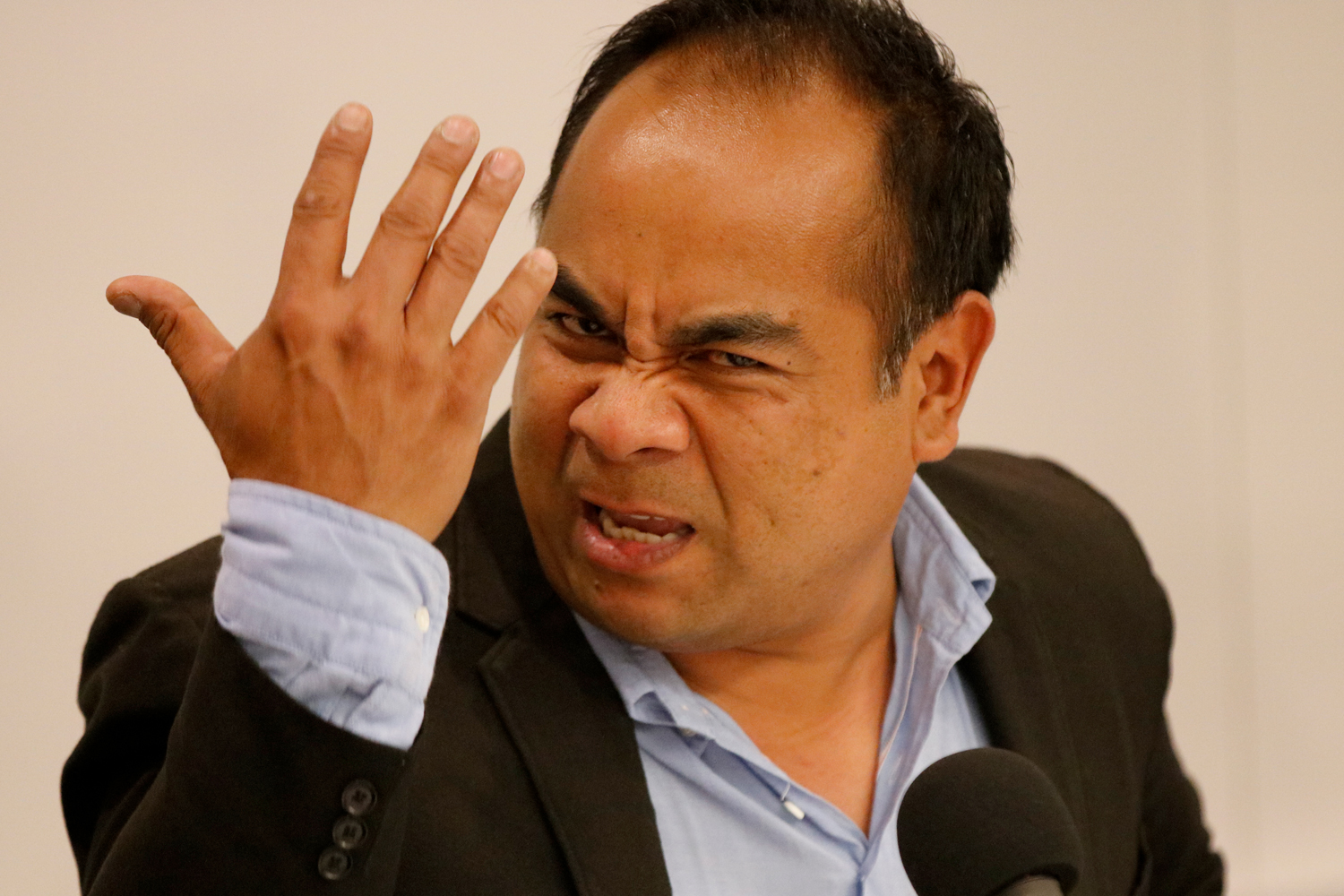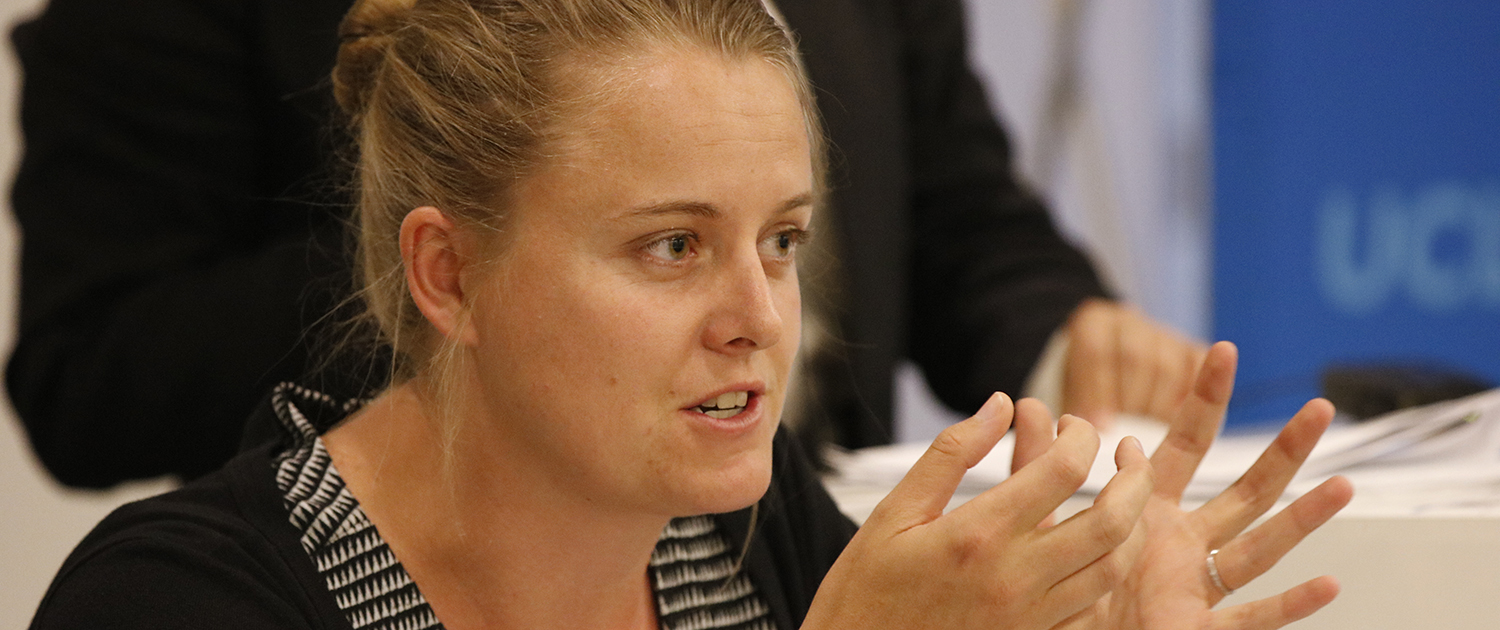The Goal: Making Diversity Redundant UCLA Luskin alumni, faculty, students and staff gather for a daylong diversity recruitment fair showcasing programs and commitment to social justice
“You need diversity because it is excellence and its absence is a sign of intellectual weakness and organizational incapacity. So what we do here today and what we do at Luskin makes the country, Los Angeles and the world a better place.”
— UCLA Luskin Dean Gary Segura
By Stan Paul
Gary Segura, dean of the UCLA Luskin School of Public Affairs, was happy to host the second all-school diversity recruitment fair at UCLA. But, in truth, he would like to see it become redundant.
“I am hoping and believing that we are getting very close to the verge of making it redundant in what Luskin does,” said Segura, who has devoted his academic life to studying issues related to the issues highlighted by the fair.
“By your arrival next fall, Luskin will indisputably be the most diverse school of public affairs in the United States,” Segura said to an audience of students who have applied, or are thinking of applying, to one or more of the School’s three professional graduate programs in public policy, social welfare and urban planning.
In addition to UCLA Luskin’s outstanding faculty, Segura cited the School’s wide array of groups, caucuses and organizations — including the D3 Initiative (Diversity, Disparities and Difference) — and new programs, new hires and ongoing searches for new faculty focused on racial inequality, multicultural planning and immigration policy, among other areas of expertise.
The many UCLA Luskin student groups, along with their classmates, alumni, faculty and staff, came together again this year to organize the Dec. 2, 2017, event.
“At some point, the study of class and racial and sexuality differences as an understanding of public policy, social well-being and urban issues is not a niche, it is the discipline,” Segura said. “It’s 70 percent of the population.”
Joining the dean in welcoming fair attendees were faculty leaders in Public Policy, Social Welfare and Urban Planning, along with a panel of Luskin alumni representing all three graduate programs.
Making her pitch to candidates for the Master of Social Welfare professor and department chair Laura Abrams focused on recent tax legislation passed by the U.S. Senate.
“What does the tax bill have to do with social welfare at the UCLA Luskin School of Public Affairs?” she asked. “Everything,” came a soft voice rising from the audience, stealing a bit of Abrams’ thunder.
“That was on my notes,” quipped Abrams, who explained that the bill would directly attack Social Security, Medicare and “all the public benefits that are the foundation of our social welfare system.”
She then asked who would deal with the costs of economic hardships on the front lines.
“Social workers!” she answered emphatically, adding, “We are going to have to be the ones who pick up the pieces of those who are displaced, who are homeless, who are pushed into the criminal justice system, who don’t have enough to eat and who don’t have housing.
“So,” Abrams added, “we need all of you, not just those entering social welfare, but the planners and the policy makers because you are the future that is going to have to fix what is happening today.”
Manisha Shah, associate professor and vice chair of Public Policy, highlighted the expertise of Luskin faculty in areas such as health policy, education, immigration, inequality, science and technology.
“We have a lot of flexibility in the department based on what your interests are and what you want to do, what type of policy arena you want to work in,” said Shah, who cited the department’s mixture of qualitative and quantitative approaches to evidence-based policymaking and analysis.
Vinit Mukhija, professor chair of Urban Planning, said that diversity and excellence are not trade-offs in outlining the holistic approach his department — which will soon celebrate 50 years at UCLA — takes in making admissions decisions. Urban Planning emphasizes not only grades but also a student’s personal statement, recommendations and the importance of relevant work experience.
Mukhija, who studies informal housing and slums in the global north and south, explained his own interest as a planner in finding ways to improve living conditions in slums, and his goal to “learn about them to change our ideas about cities and about our design ideas, our rules and to have more just cities.”
Also providing information and encouragement were recent graduates of the Luskin School’s programs who participated in a series of discussions with aspiring students.
Panelists were asked what motivated them to apply to Luskin in their chosen disciplines.
“Communities of color are not always exposed to urban planning although we’re often experiencing the negative effects of what actually happens,” said Carolyn Vera MURP ’17, who was born and raised in South Central Los Angeles. Vera, who now works at a transportation consulting firm, said that when she moved back to Los Angeles following her undergraduate years, she didn’t recognize the city she grew up in, citing the effects of gentrification. Vera said urban planning is such a diverse field and, “I knew I wanted to stay in L.A. and work with my community.”
It was homelessness that brought Cornell Williams MSW ’12 to UCLA Luskin Social Welfare.
“I was homeless for a year. I had a college degree and I was sleeping in the park,” said Williams, now a psychiatric social worker for Los Angeles County Department of Mental Health and clinical director of the Jeffrey Foundation in Los Angeles. “Like a lot of our clients and people we have the passion to serve, I was stuck in that position and I had no knowledge of resources and access.”
Williams said the experience forced him to ask tough questions about himself and his future. “I came to one of these events and had an interest in all three programs,” but he said that Gerry Laviña, director of field education and associate director of D3, “was a big part of helping me conjure or stir the gifts inside of me to choose social welfare.”
Williams said UCLA Luskin’s Social Welfare gave him the flexibility to work in “every environment you can think of, and I’ve worked in a good number of them myself.”
The day’s events also included breakout sessions led by a number of the School’s sponsoring and organizing student groups: D3, Luskin Leadership Development, Social Welfare Diversity Caucus, Policy Professionals for Diversity & Equity, and Planners of Color for Social Equity.
Attending the event was recent UCLA graduate Vanessa Rodriguez, who said she hopes to enroll in the MSW program next fall. Rodriguez, who grew up in Boyle Heights and has worked with children with autism, said she has always had a passion for helping people. She said her reason for pursuing an MSW degree would be to work with women and victims of domestic abuse.
Among the staff and student volunteers who made the day a success was second-year MSW candidate Marisol Granillo Arce, who said she had attended a number of Luskin diversity related fairs before applying. Granillo Arce, who now also works as a graduate researcher for the UCLA Institute for Research on Labor and Employment, said it is exciting to meet future agents of change and tell them: “You’ve got what it takes to be a social worker, urban planner, and public policymaker.”
Granillo Arce added: “I think that individuals thinking of applying get the unique opportunity to know the staff, professors and students in the different departments. It is truly inspirational. You end up leaving the fair more confident and inspired.”
